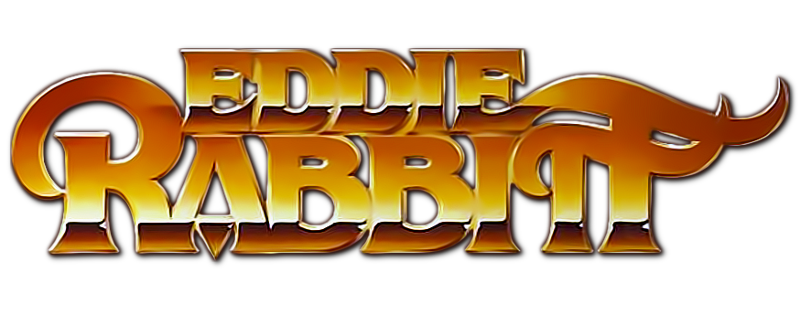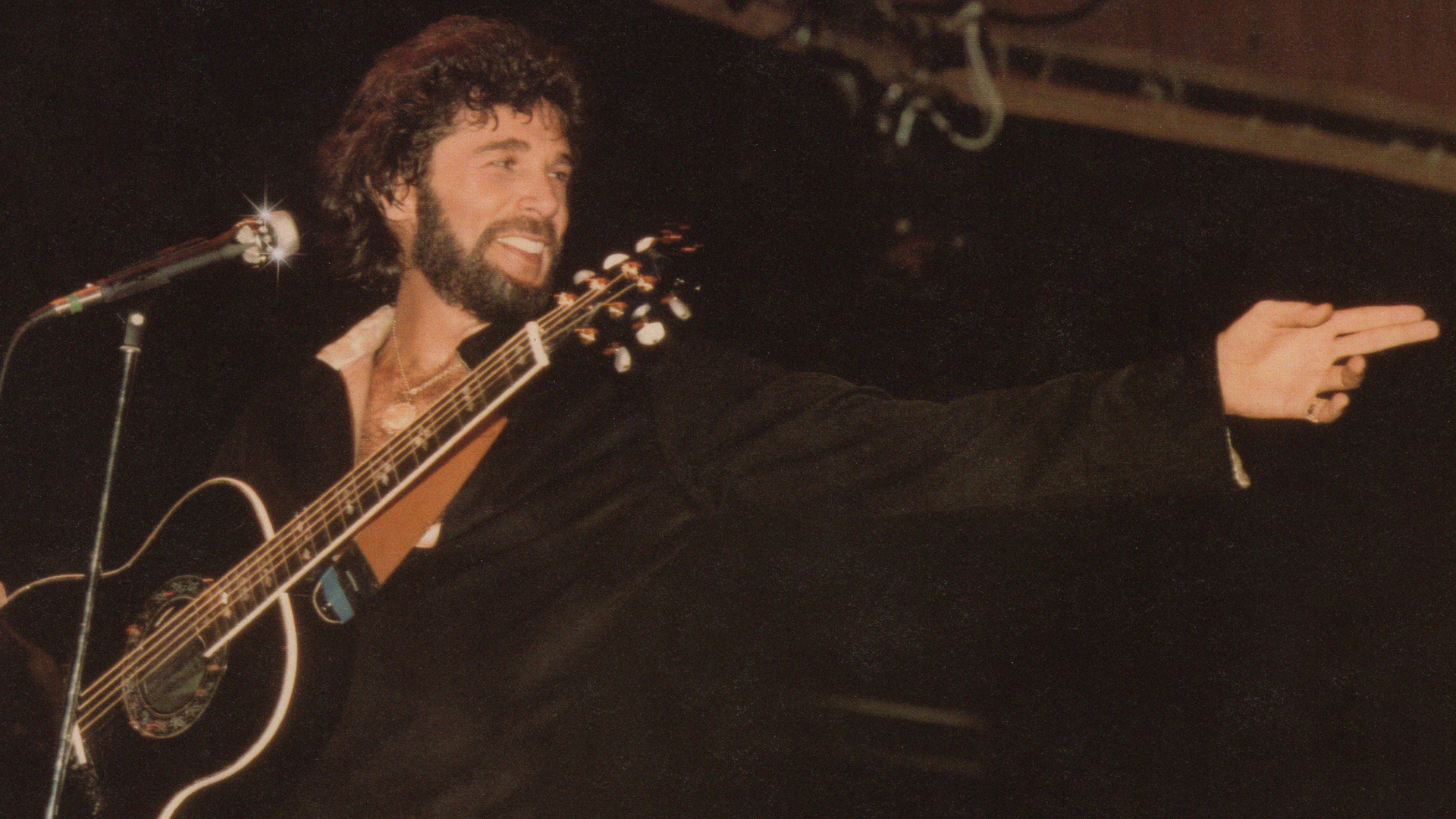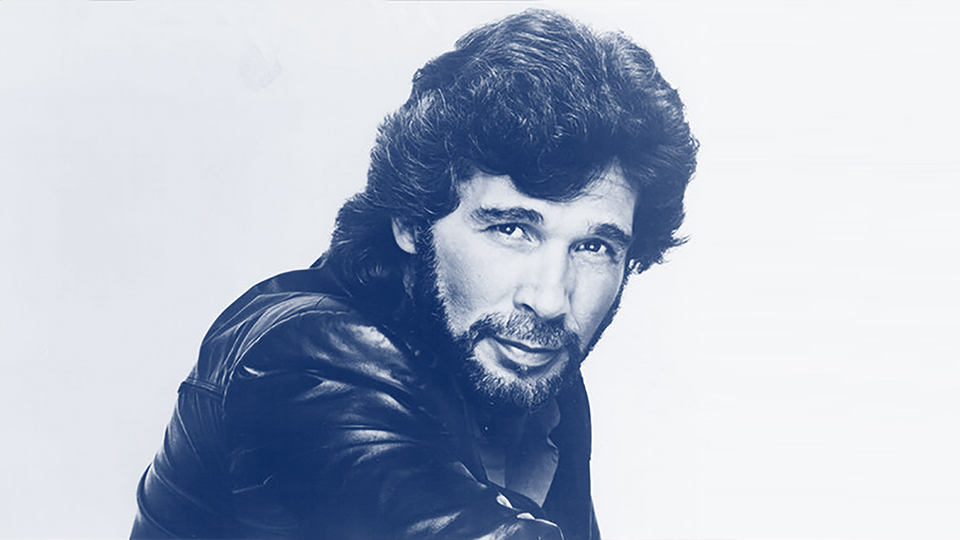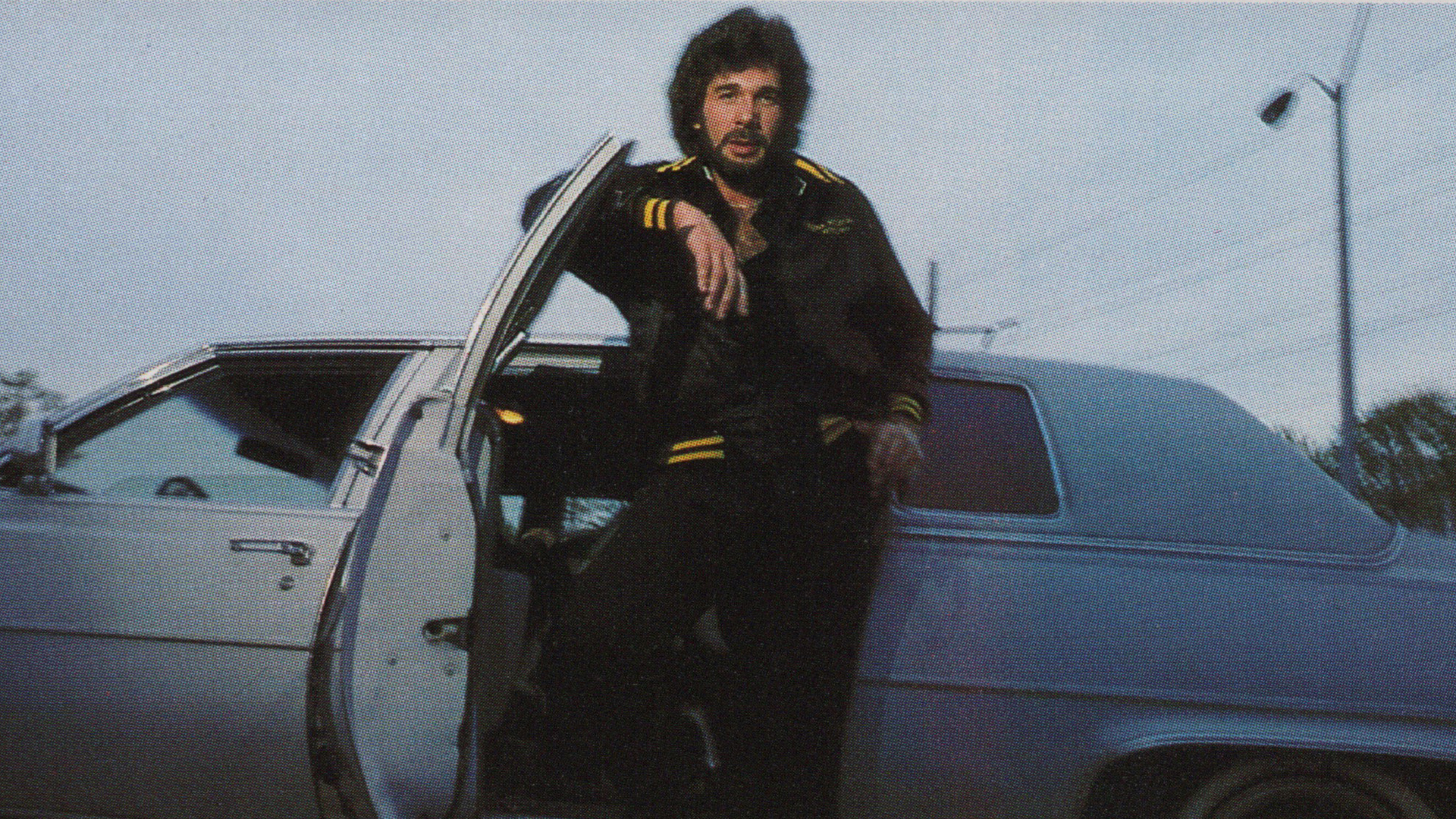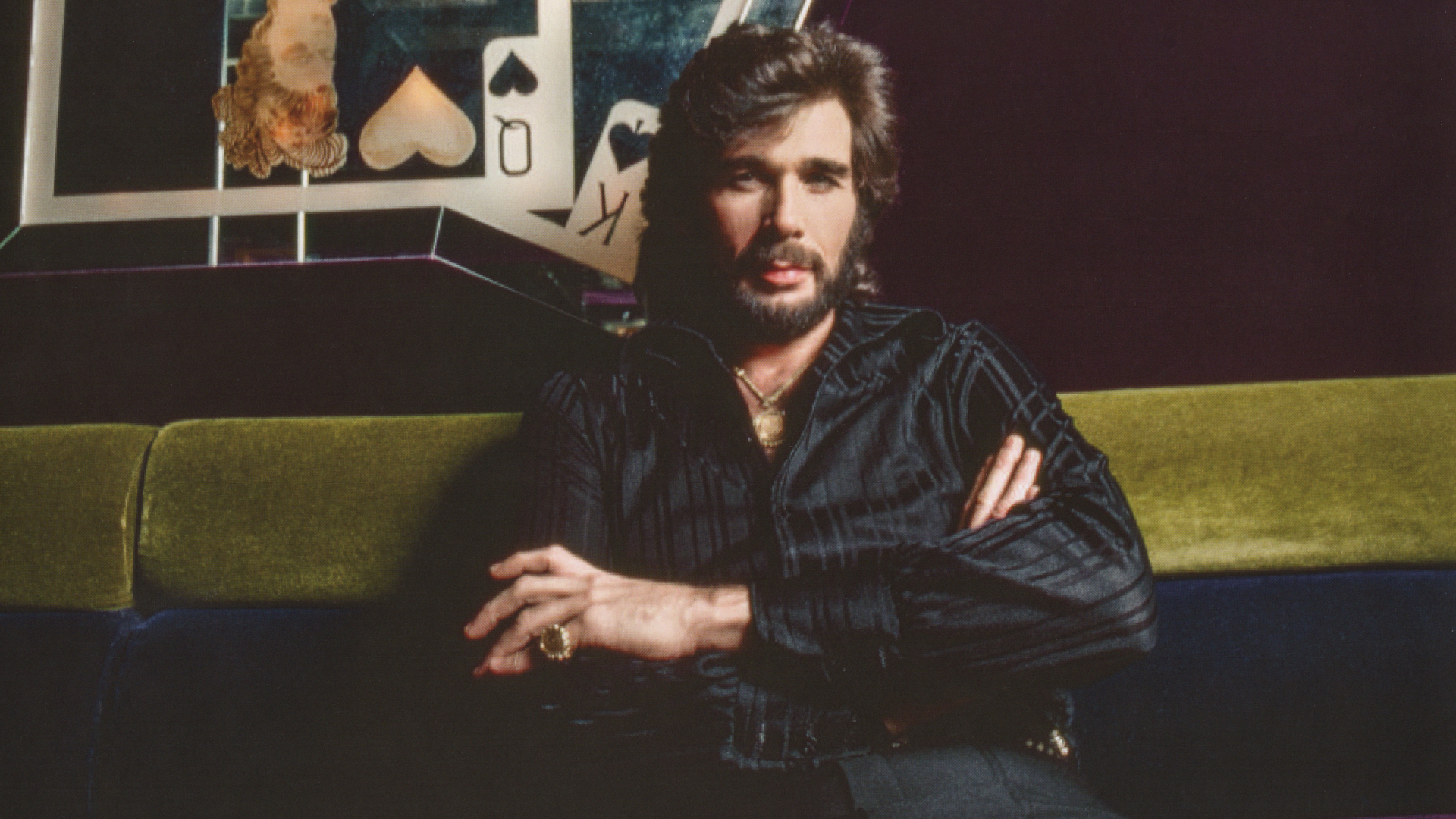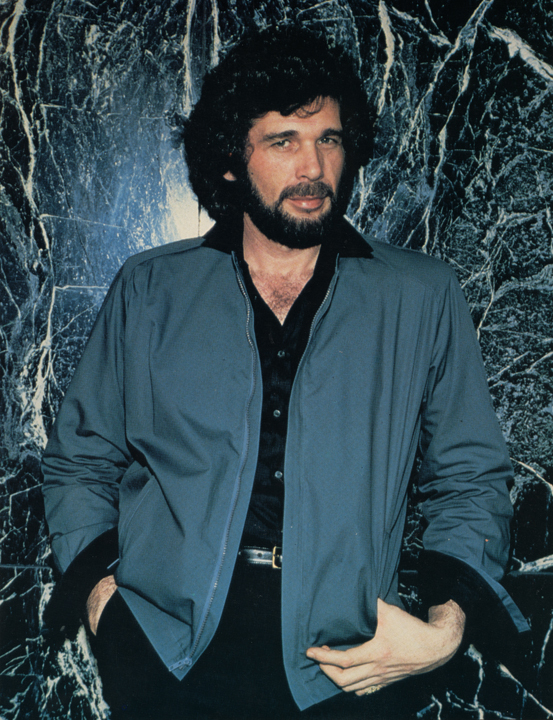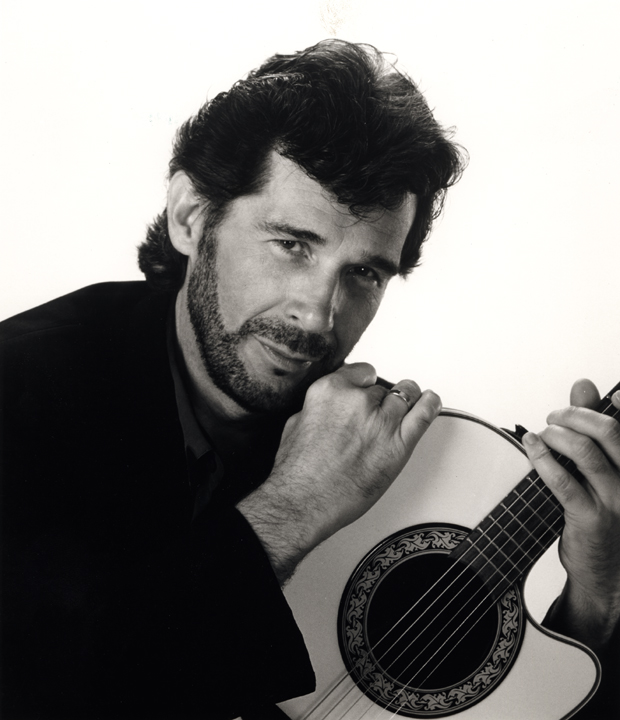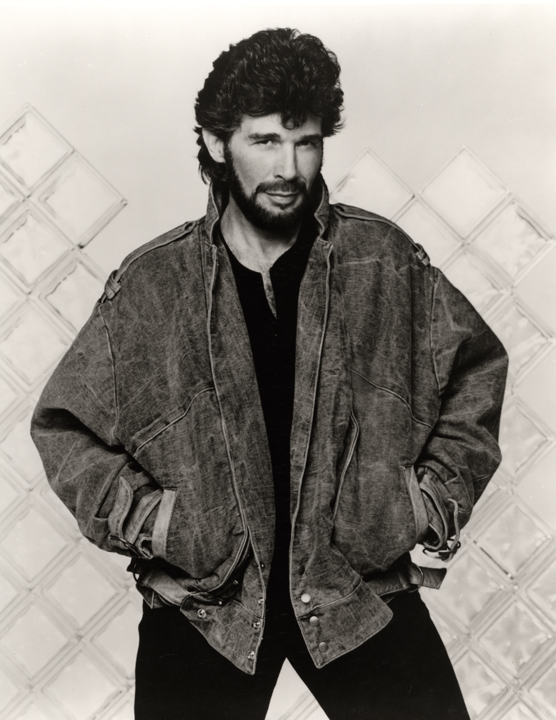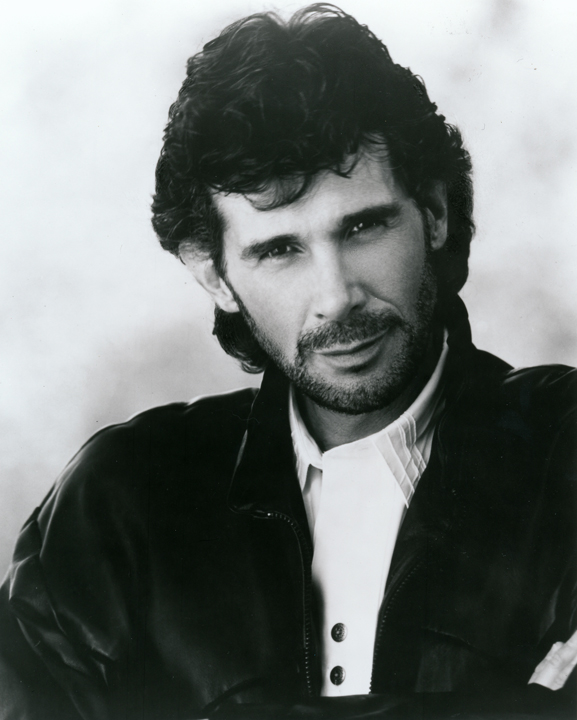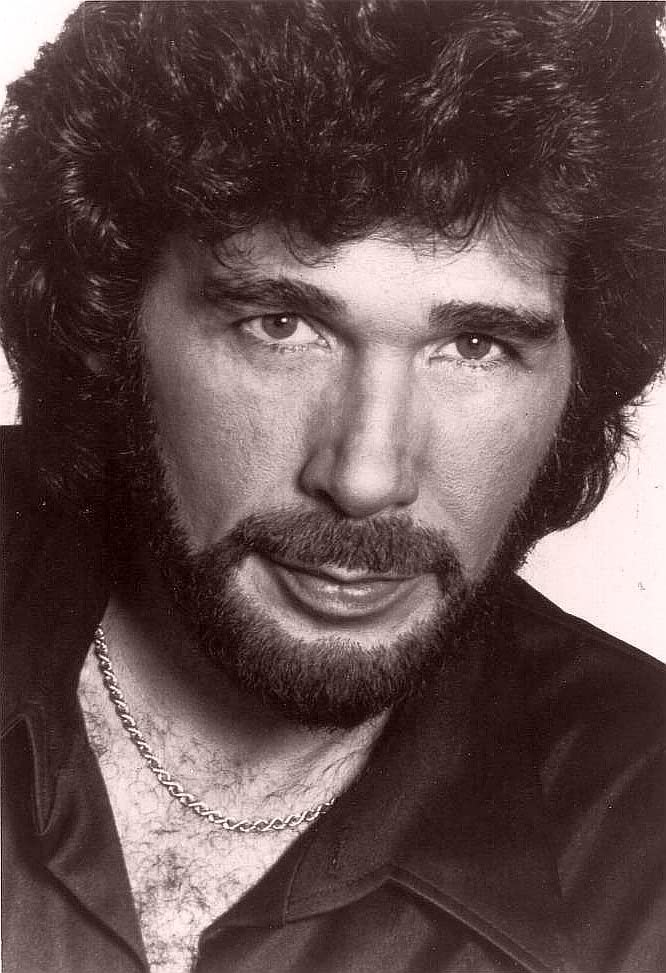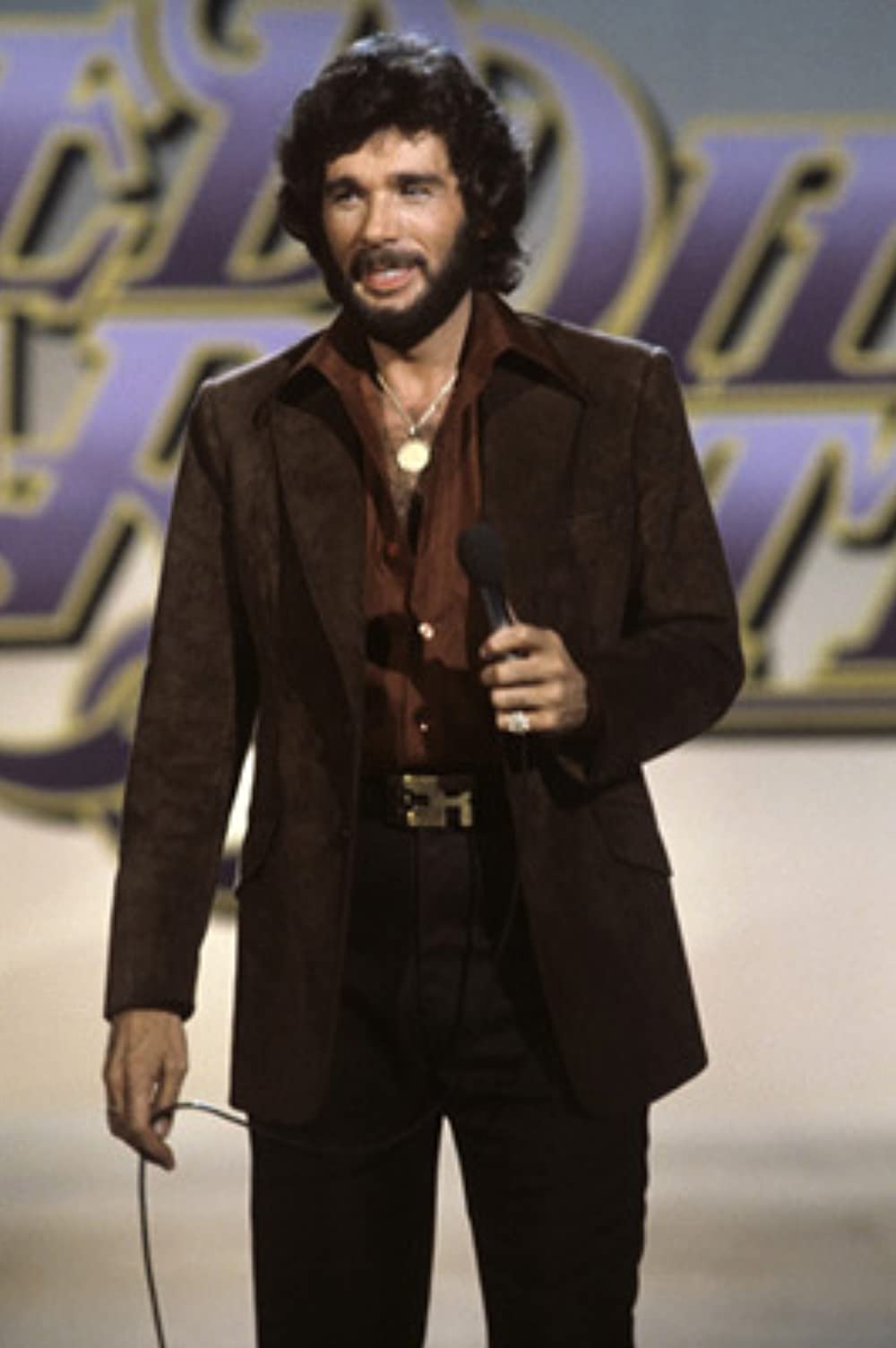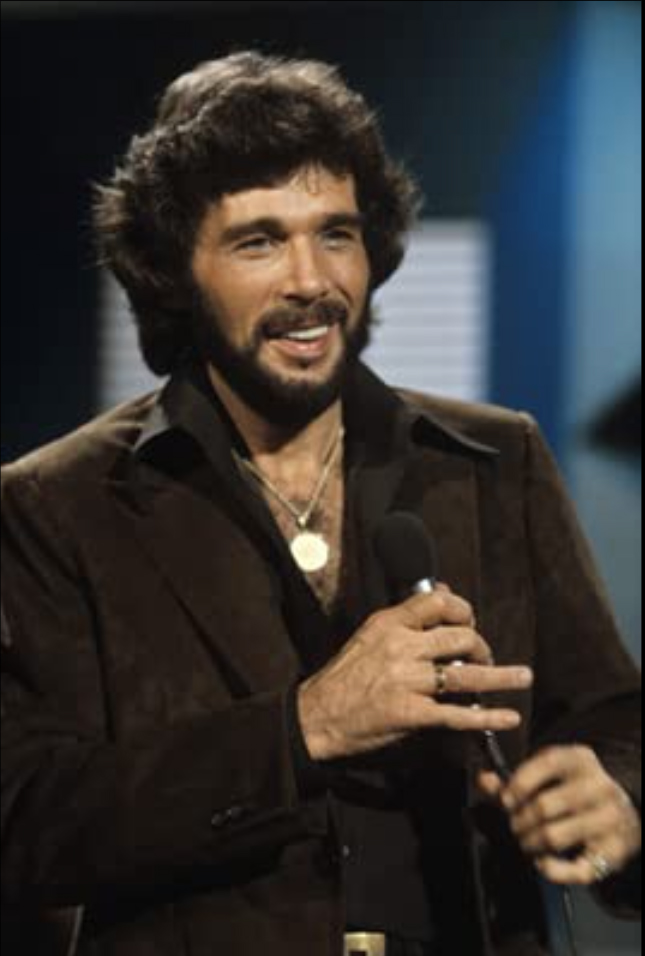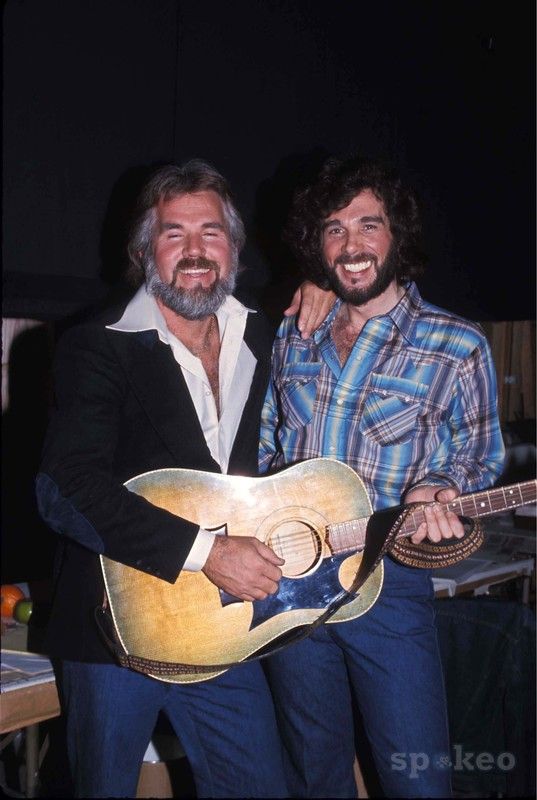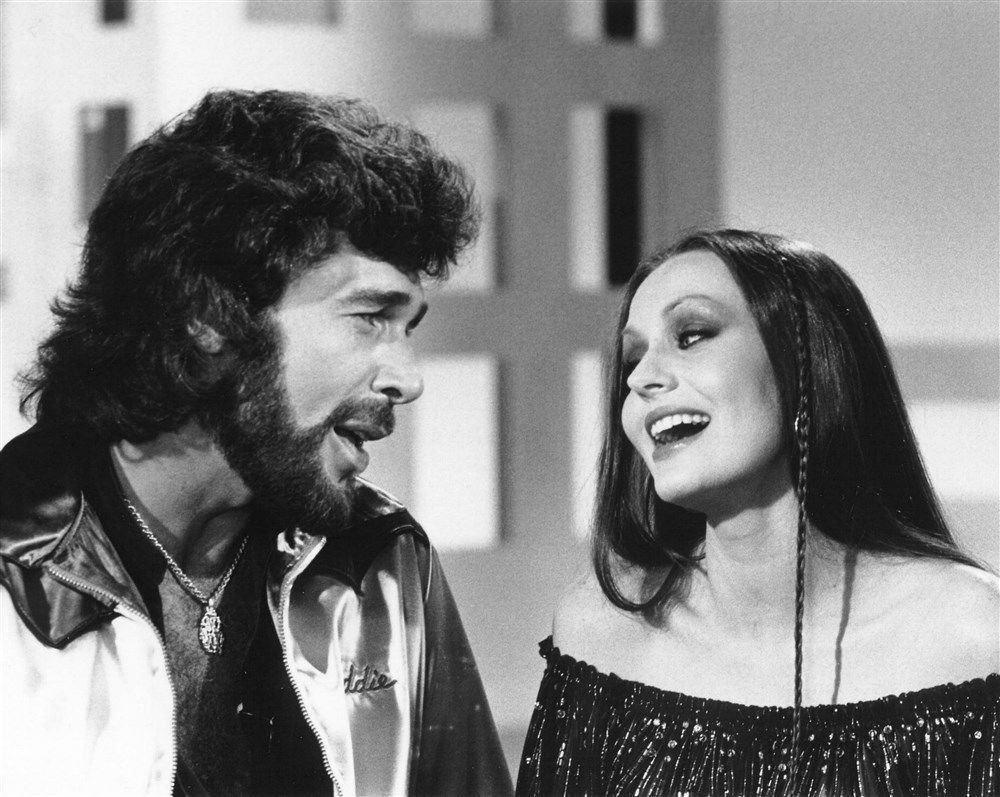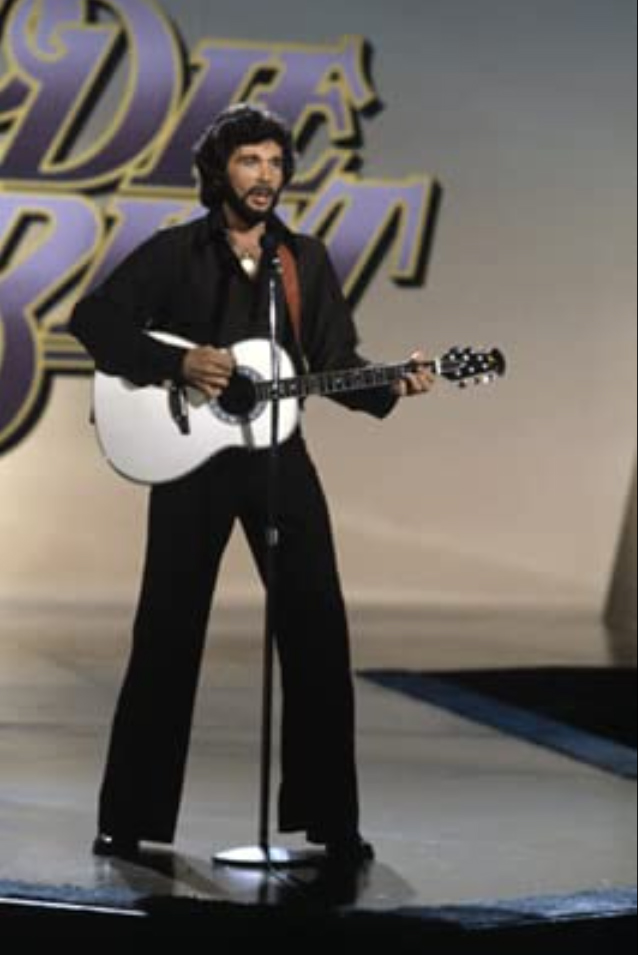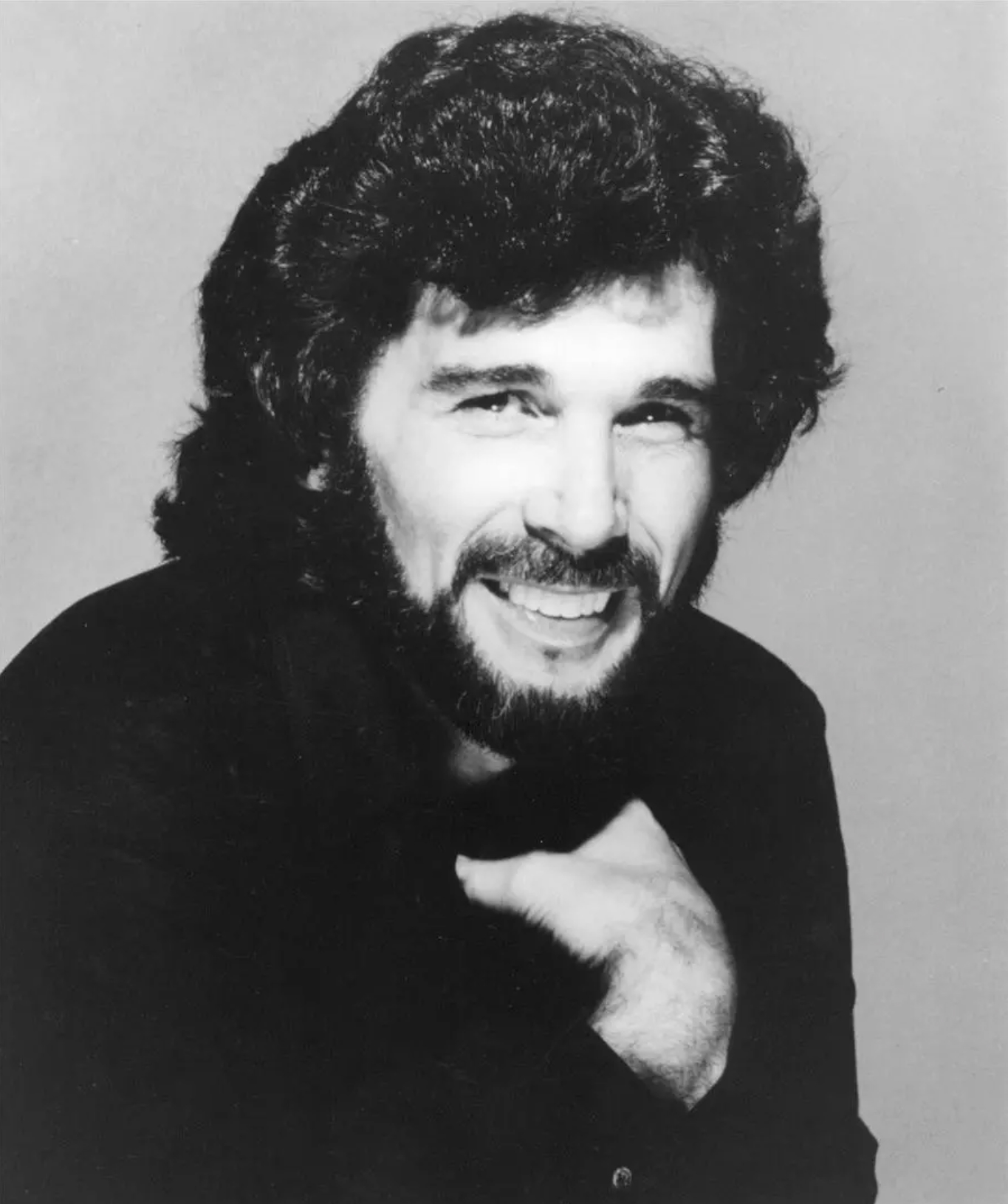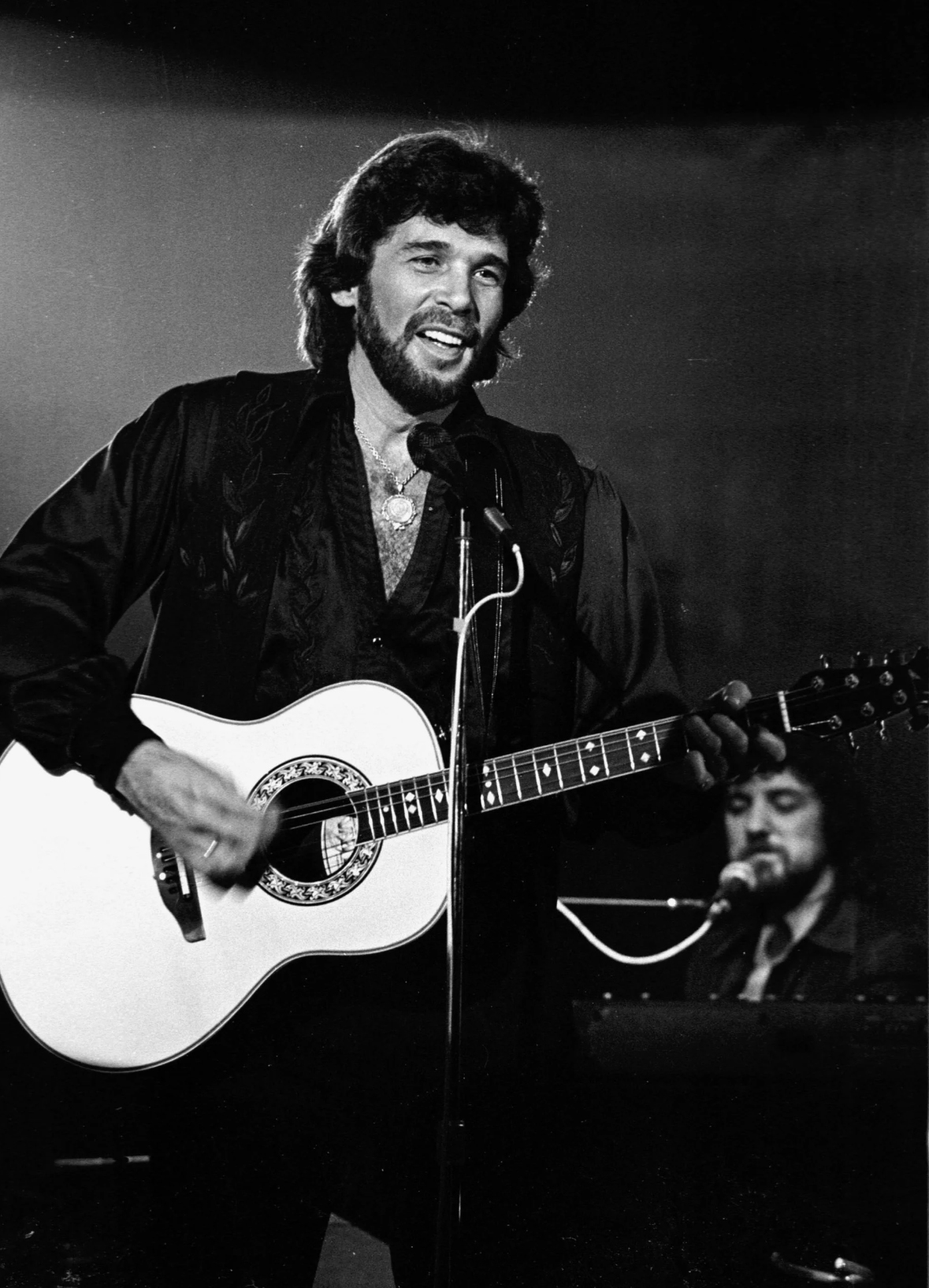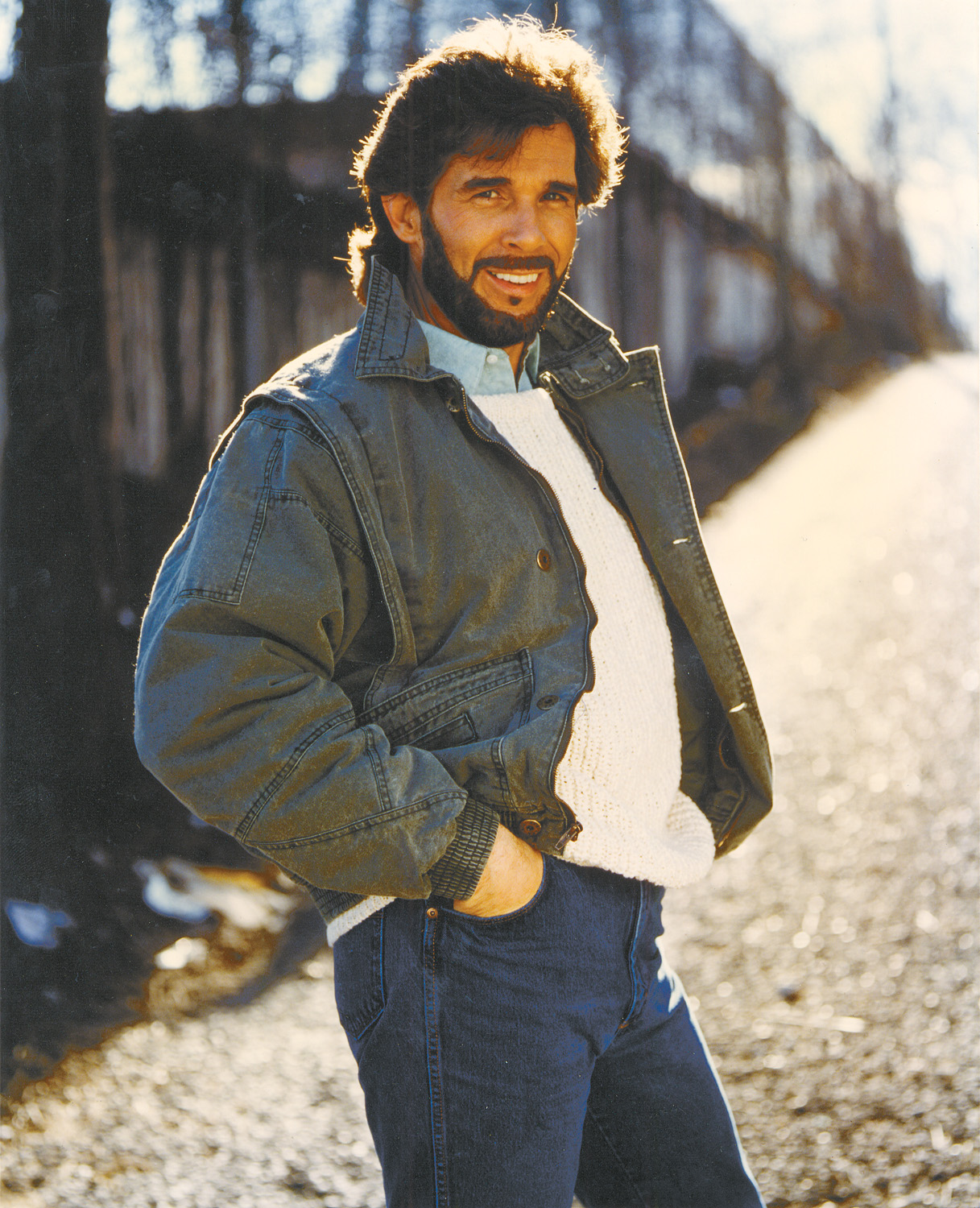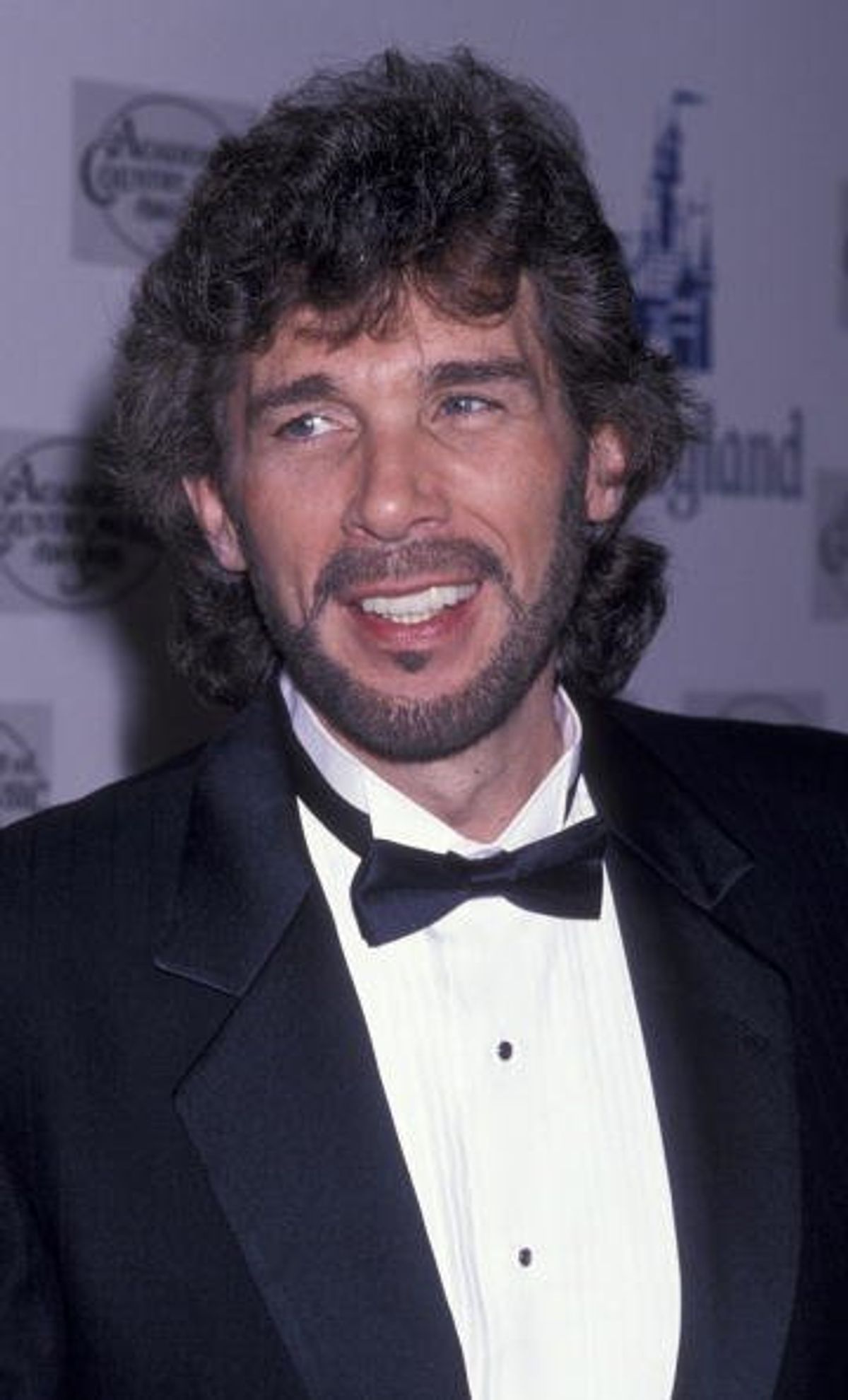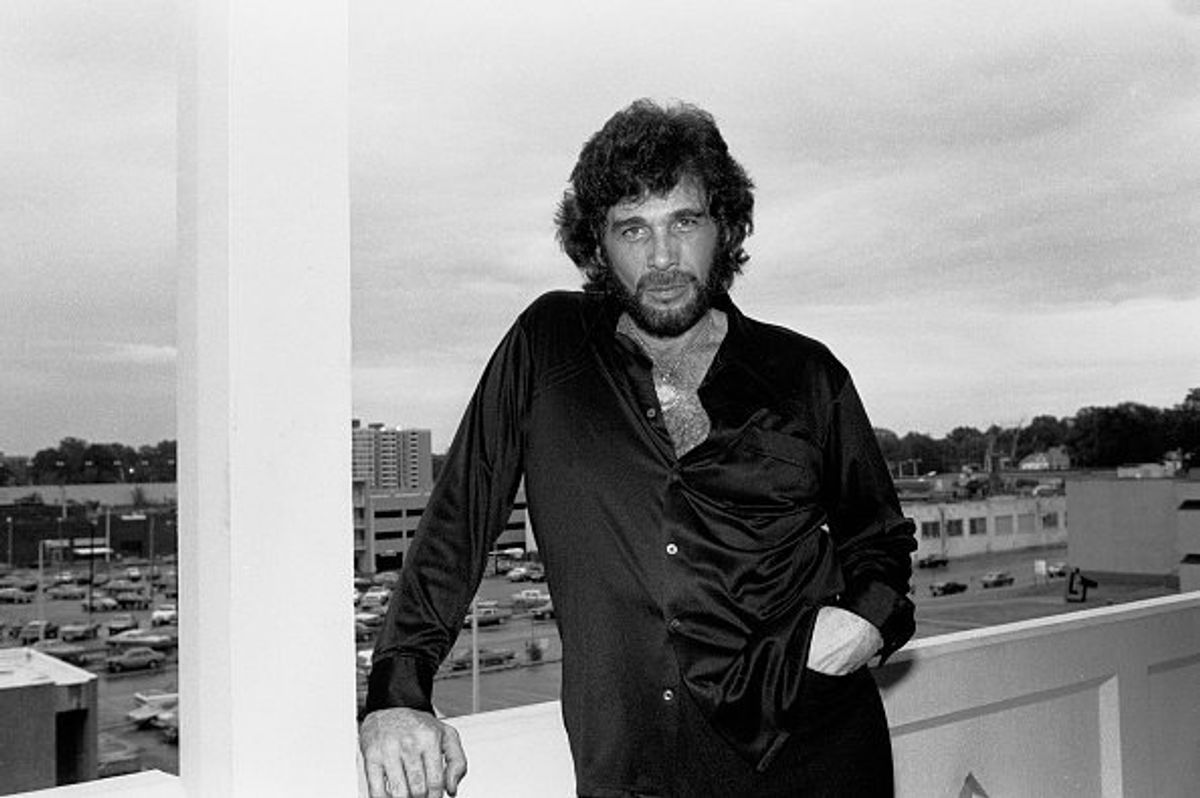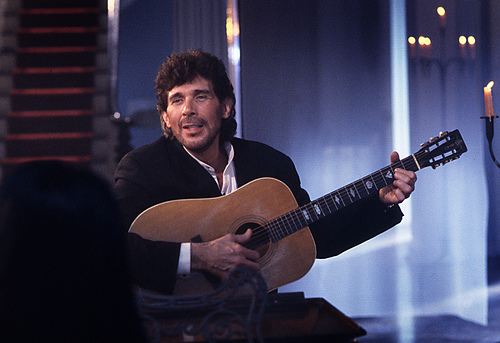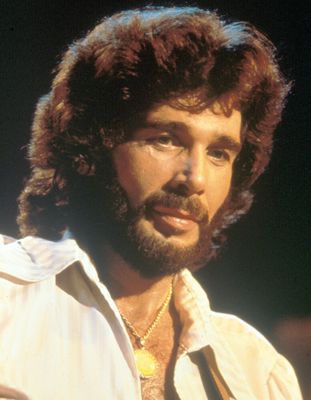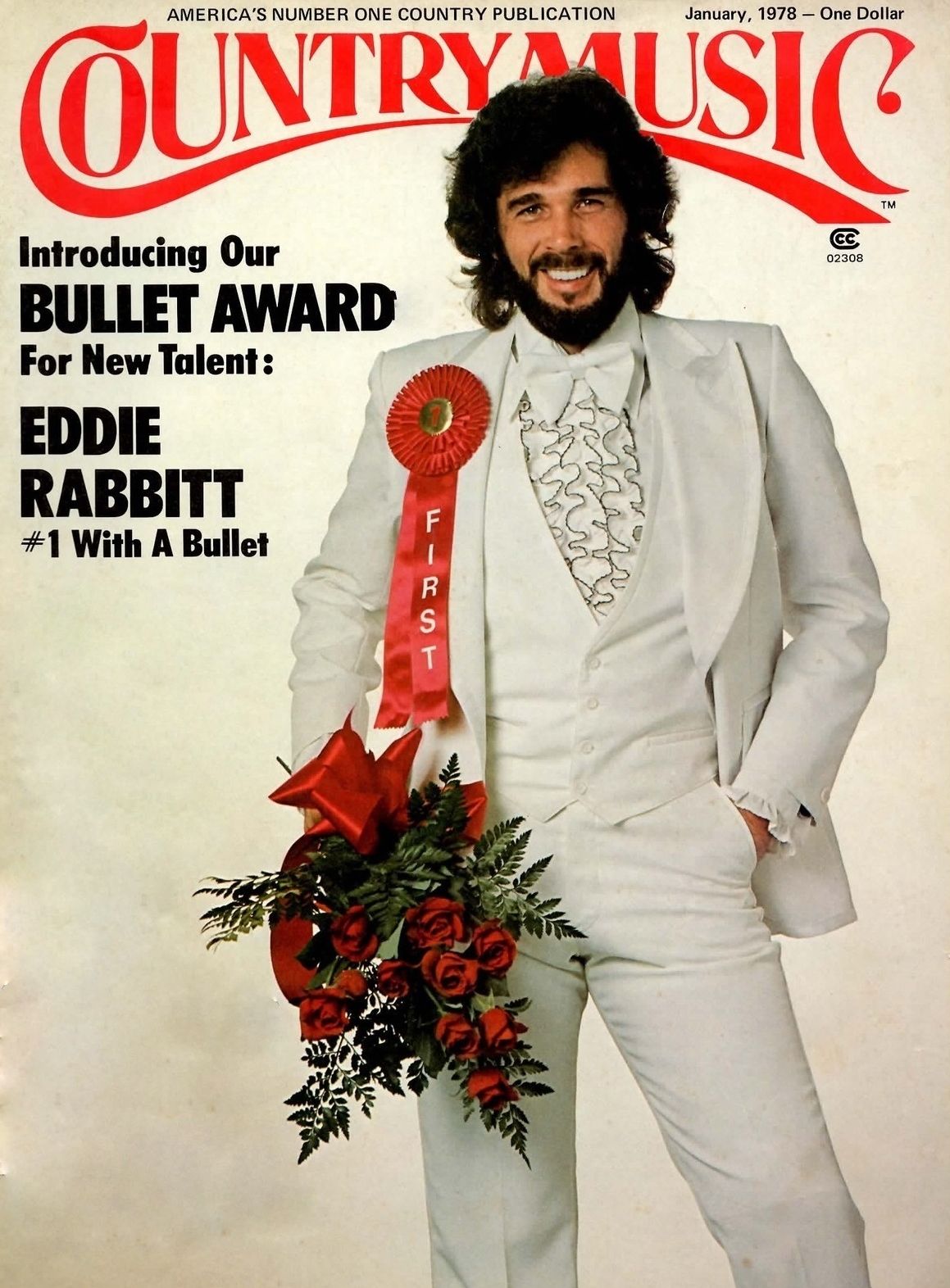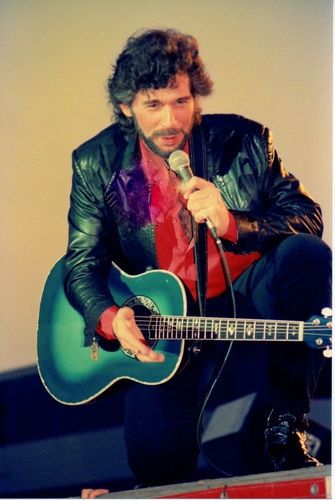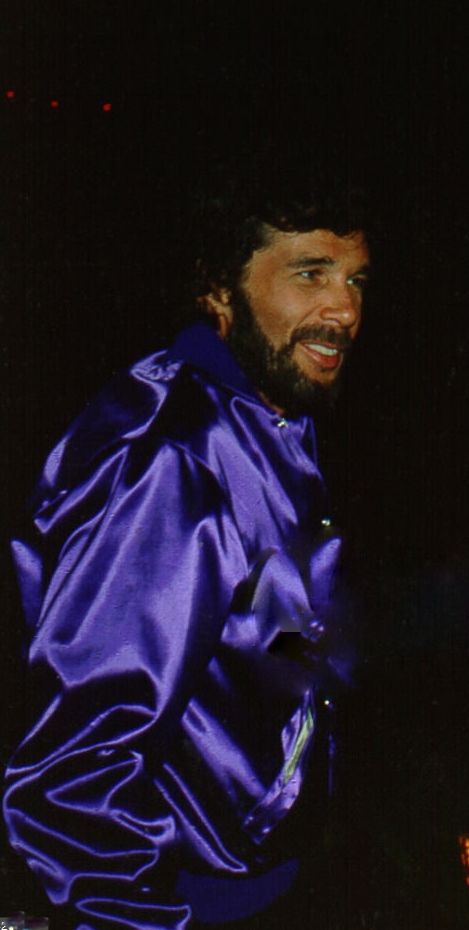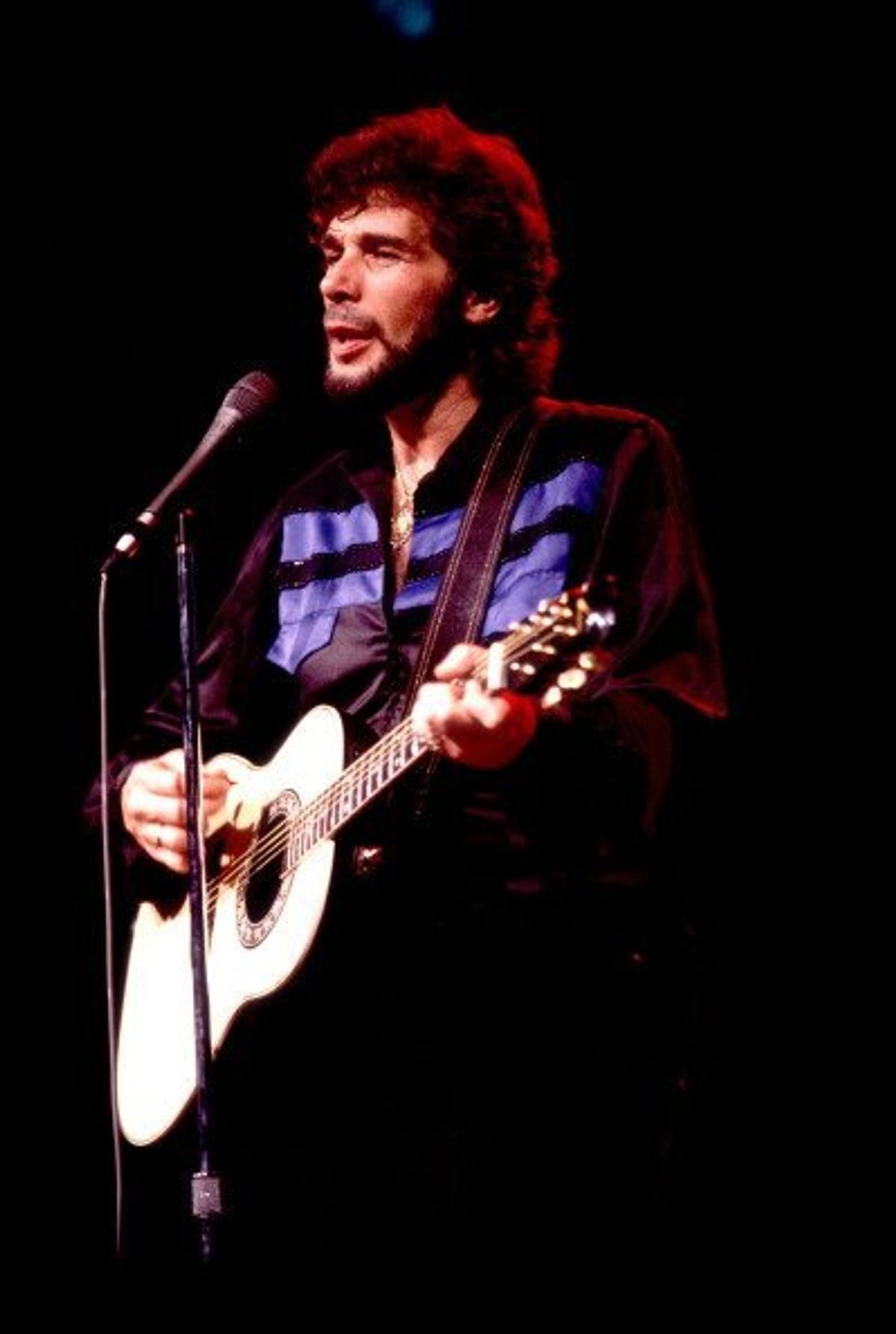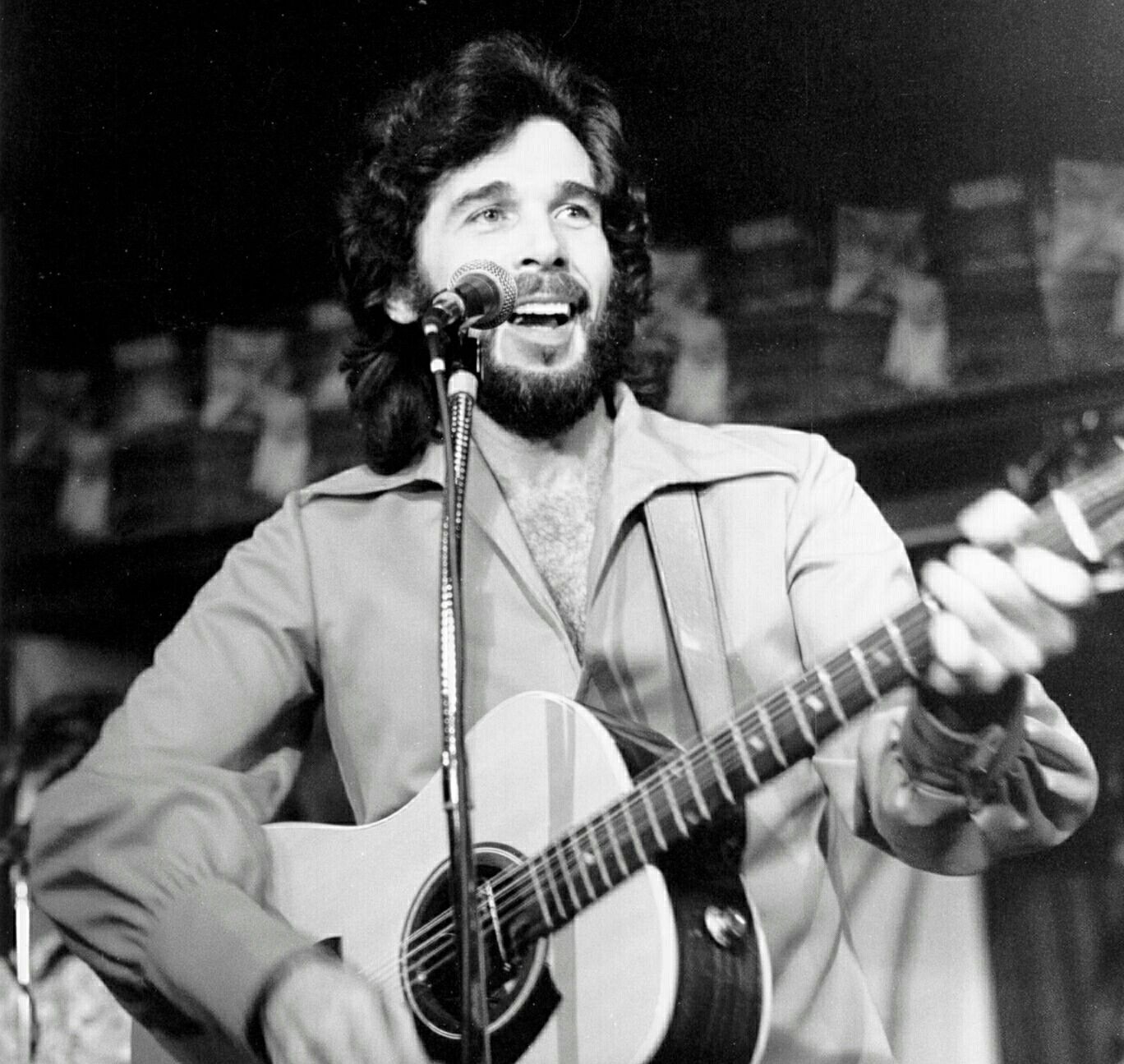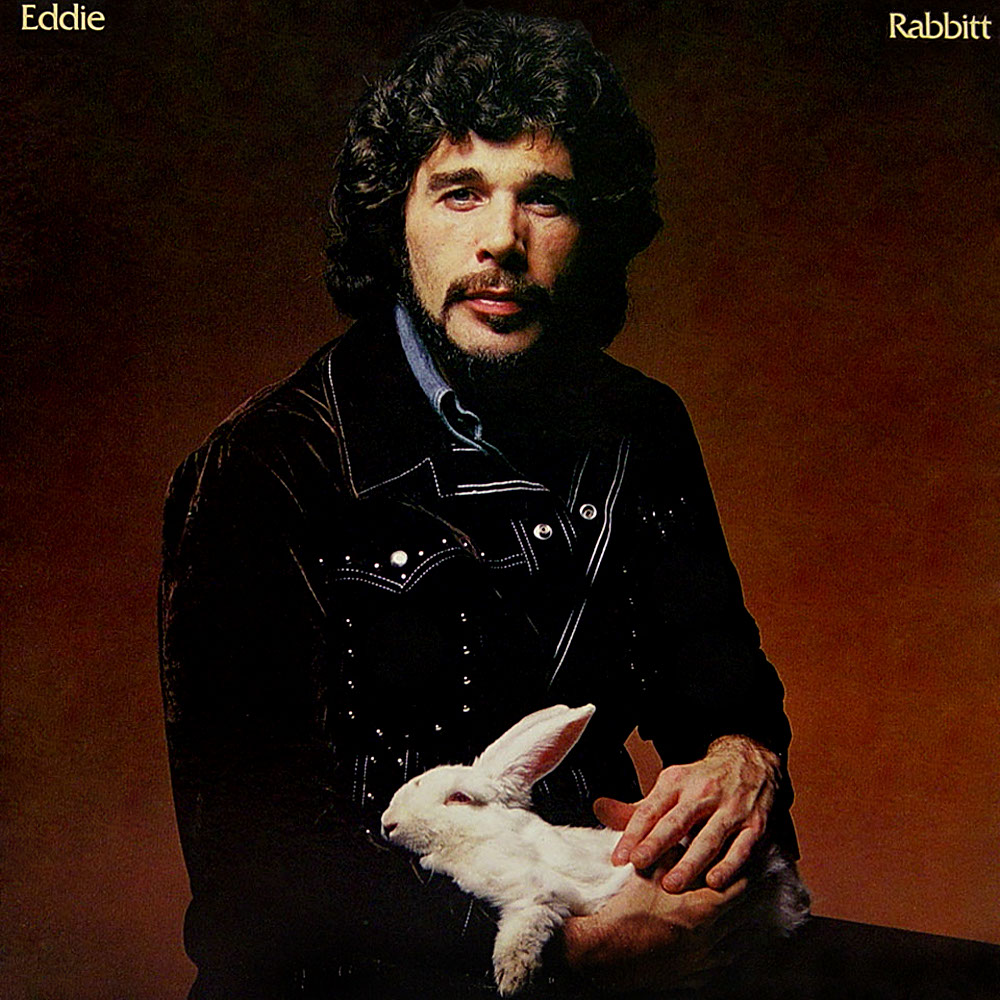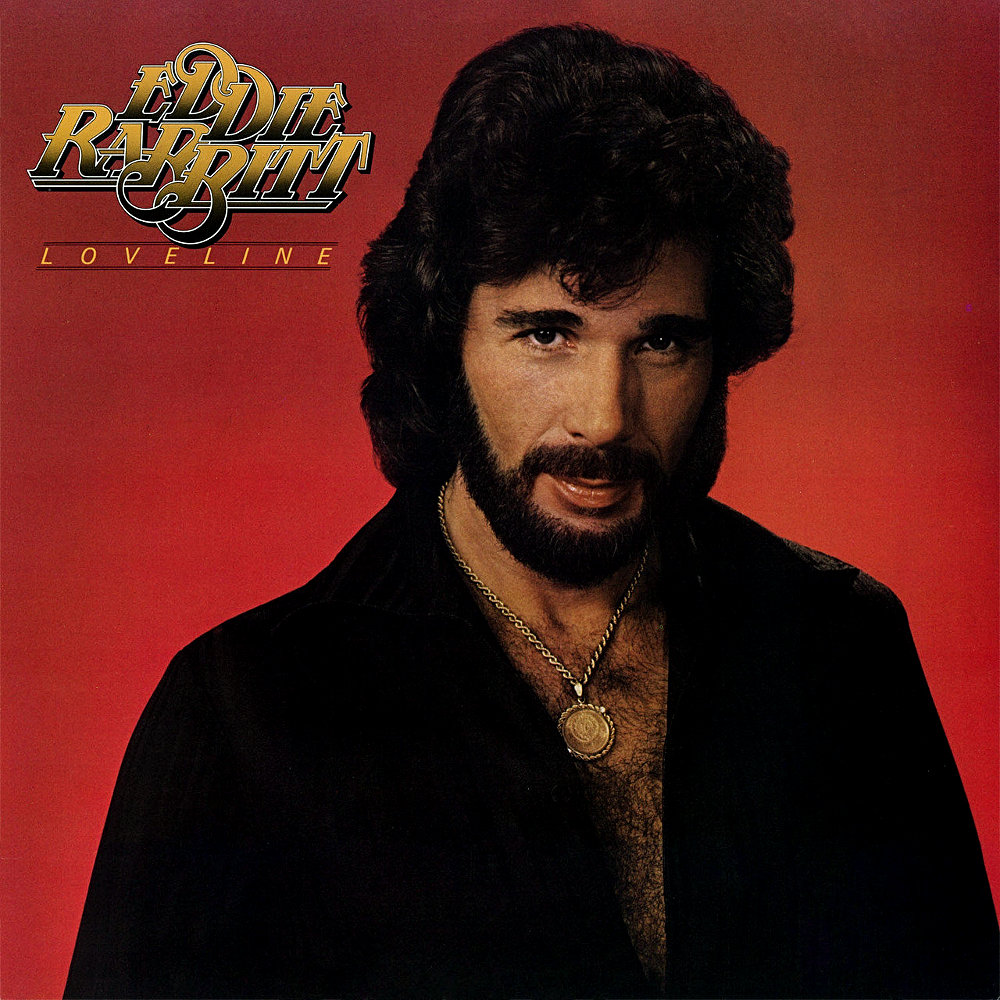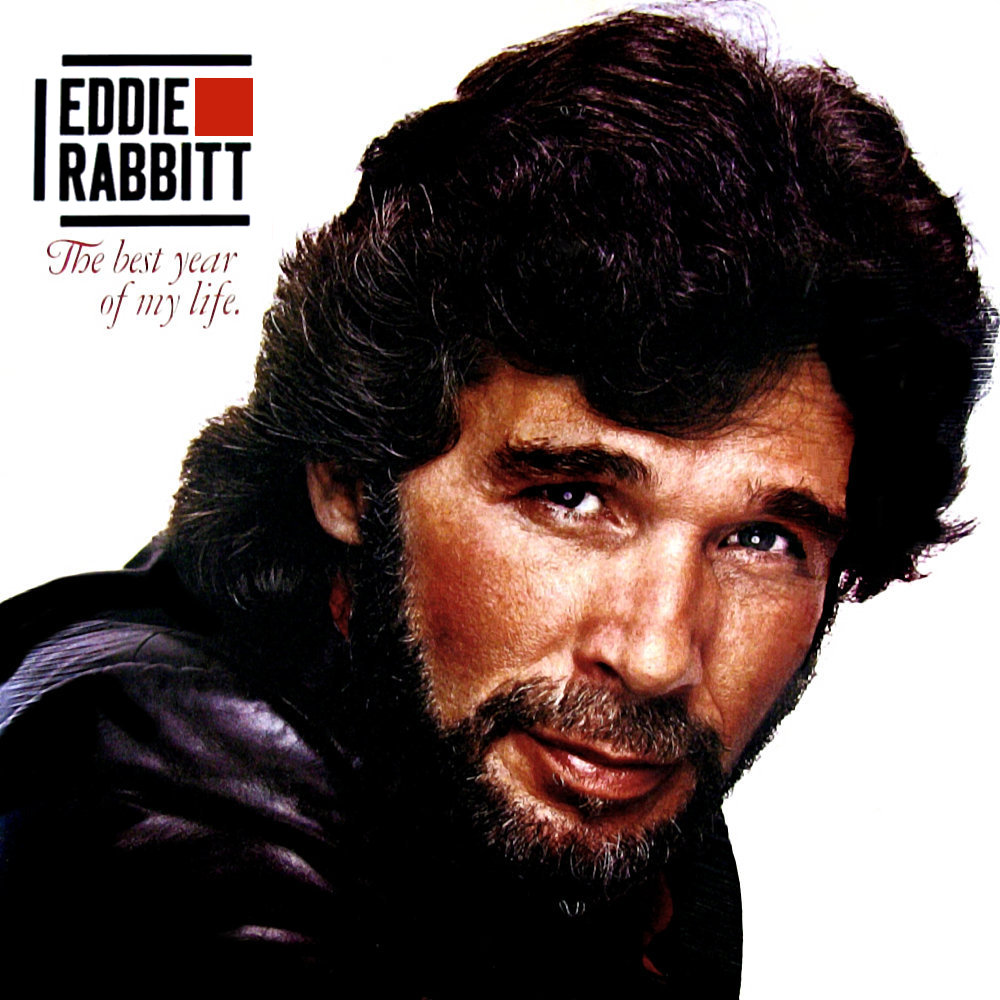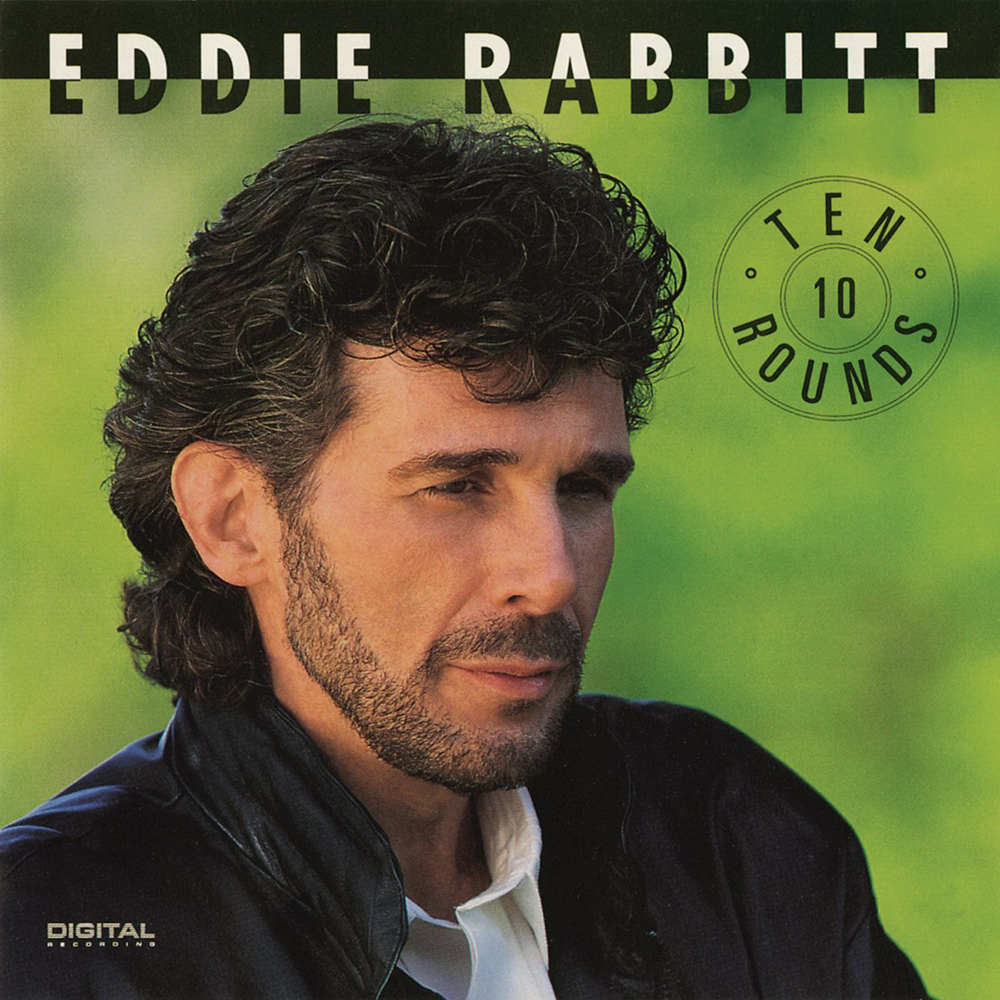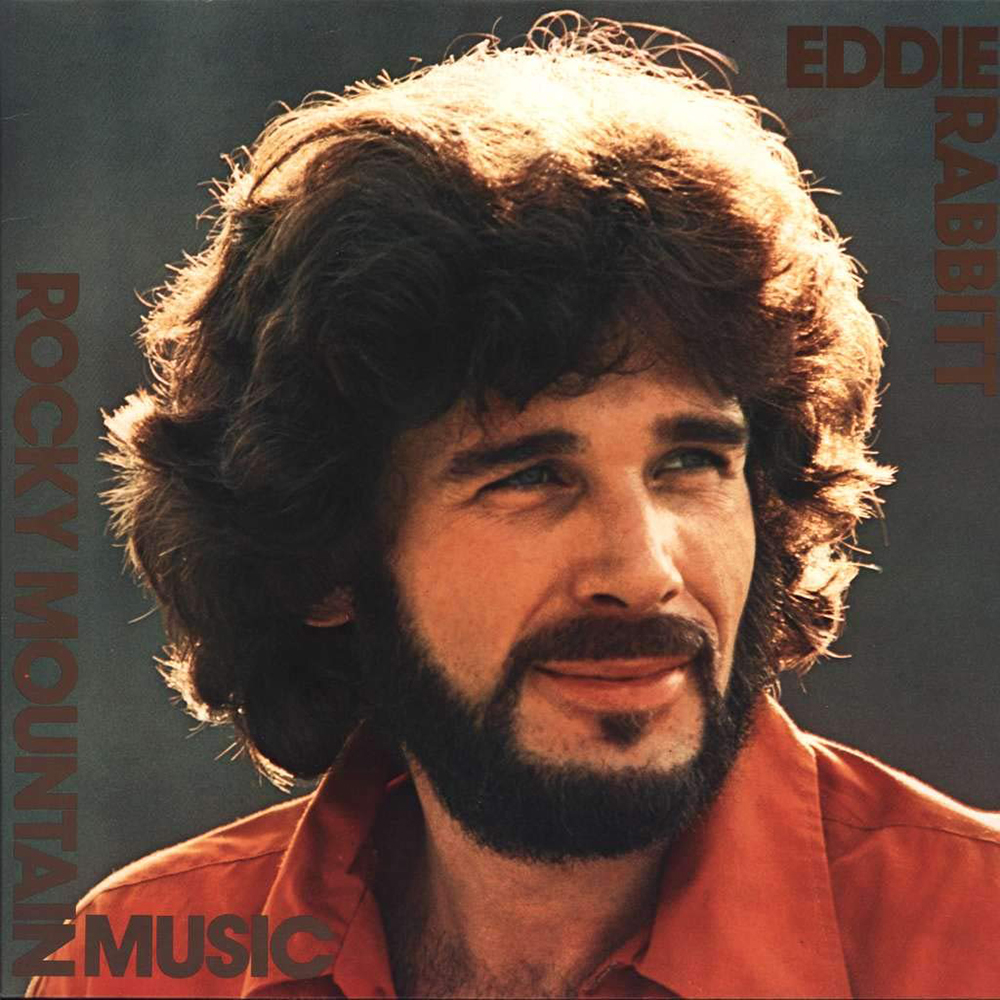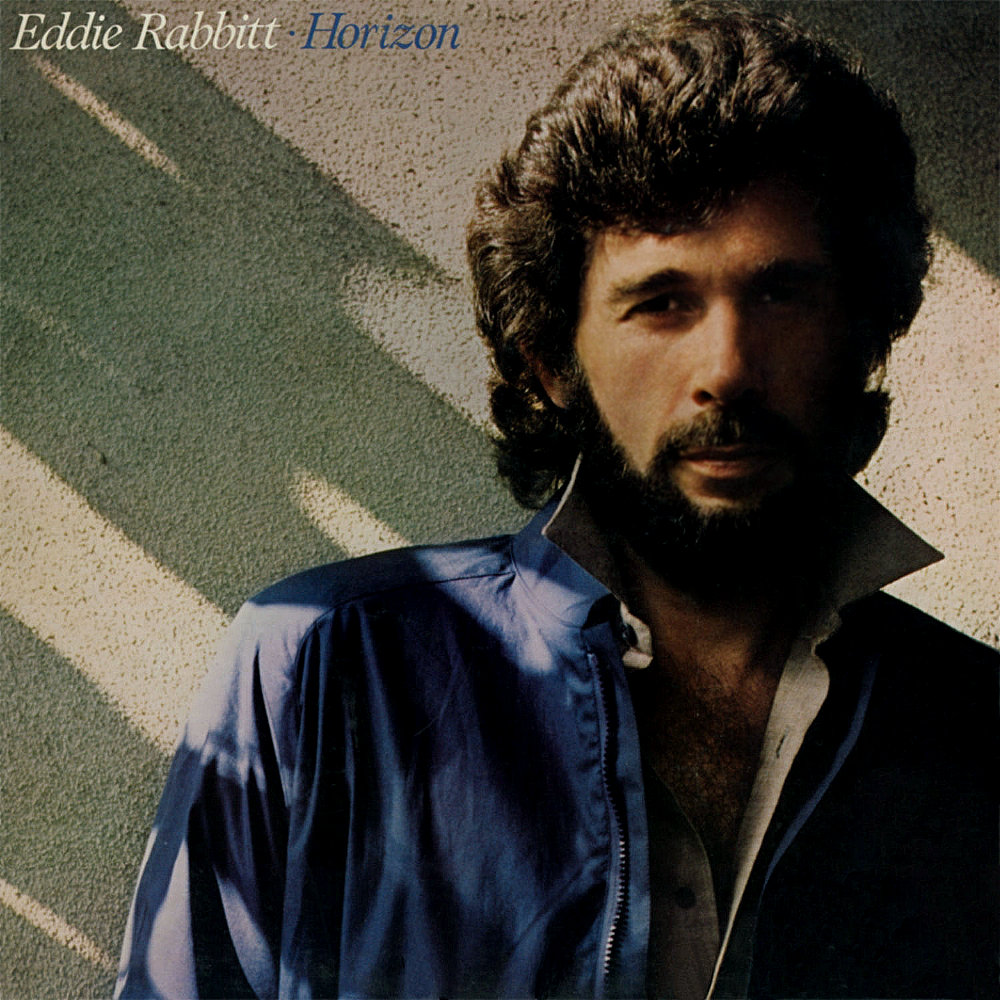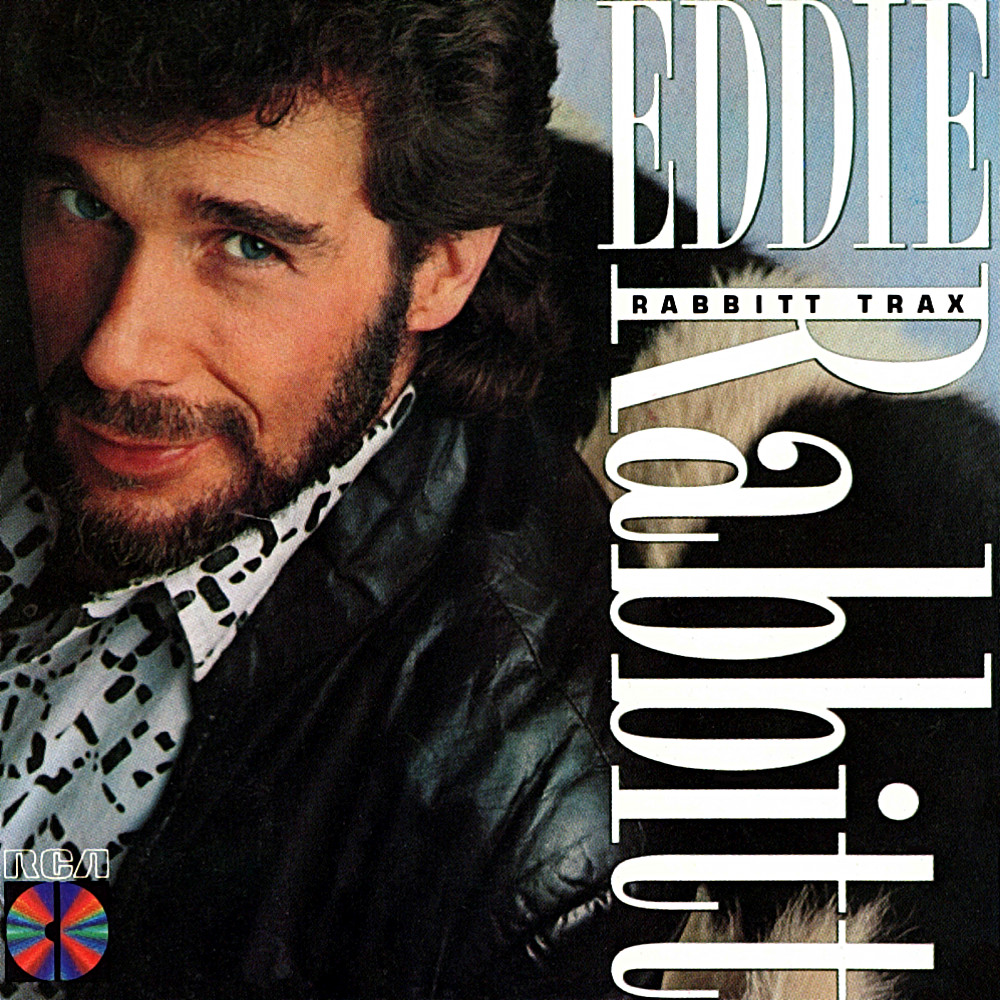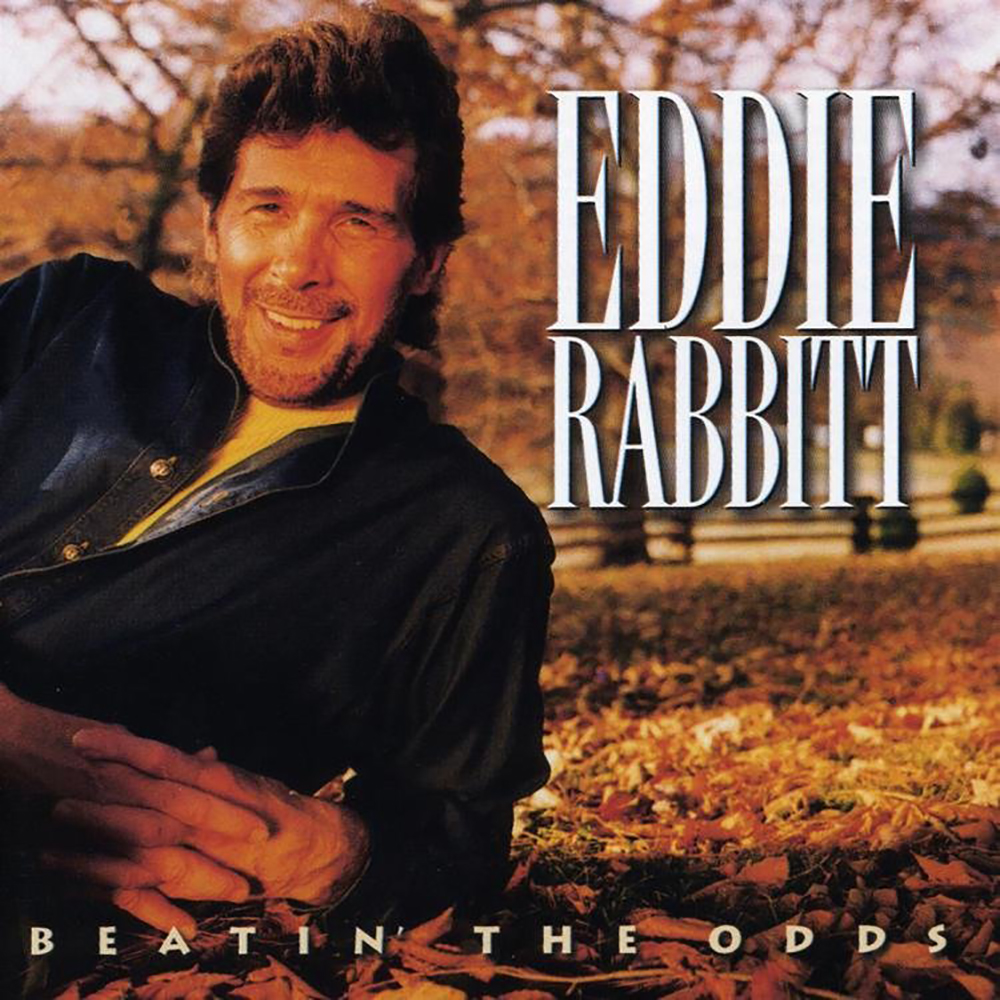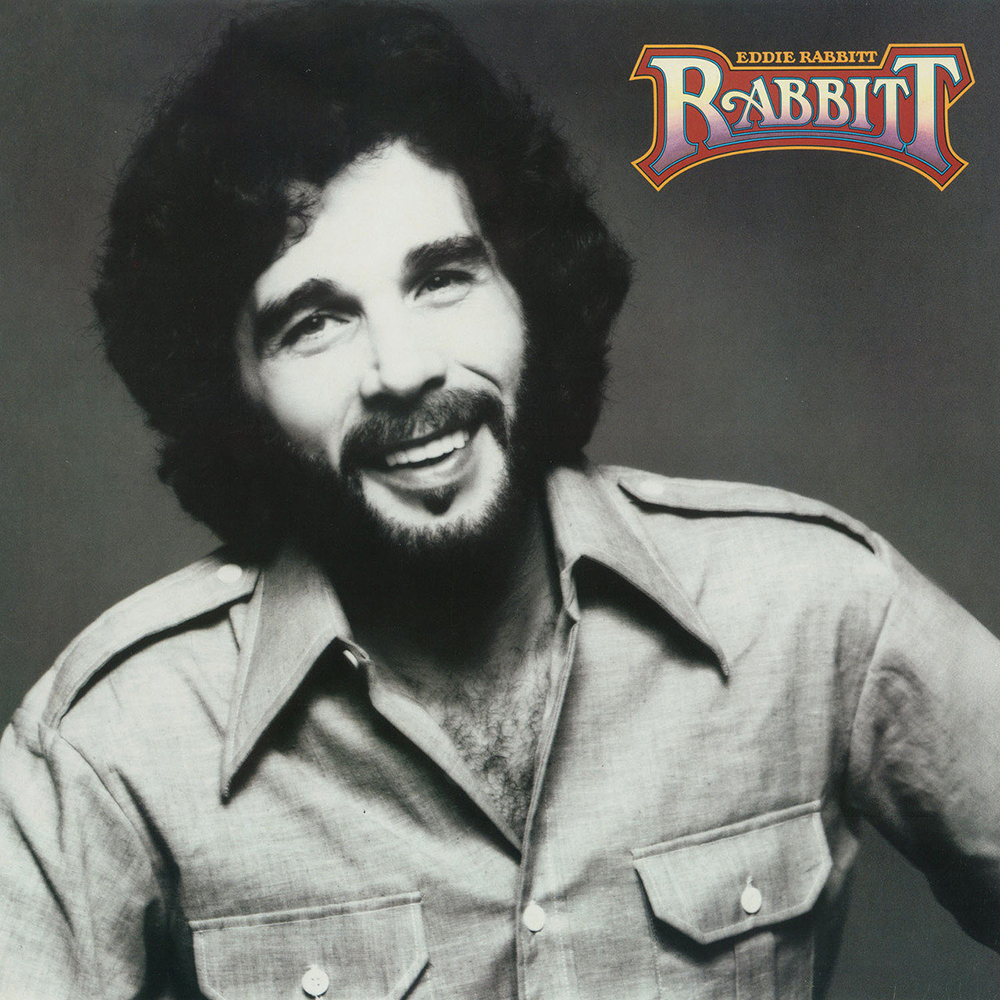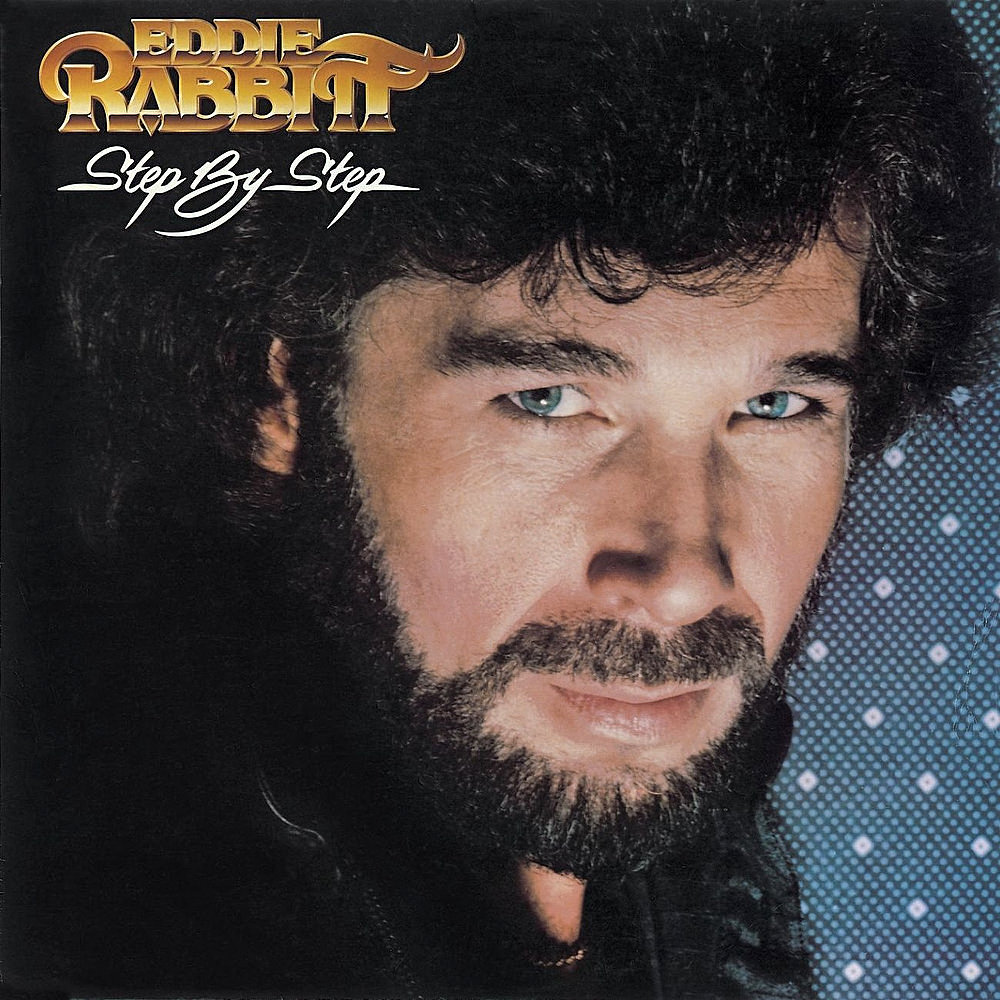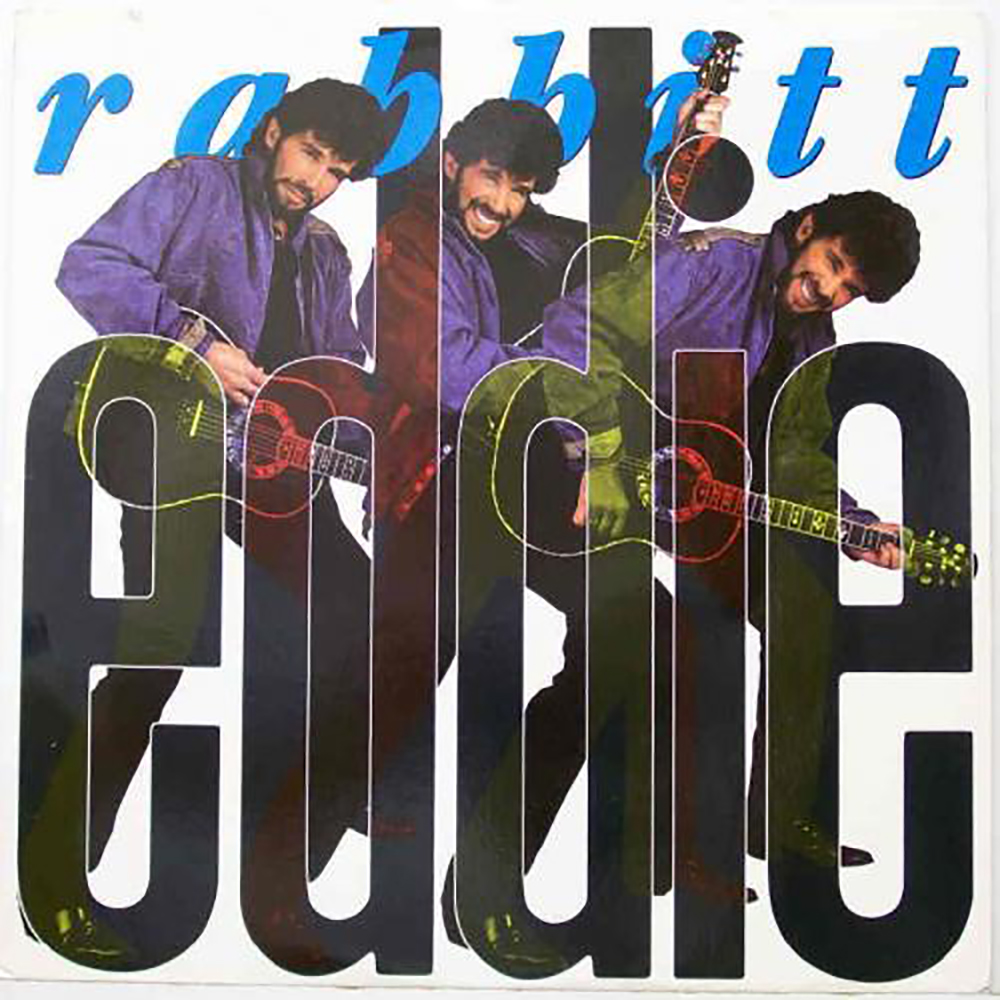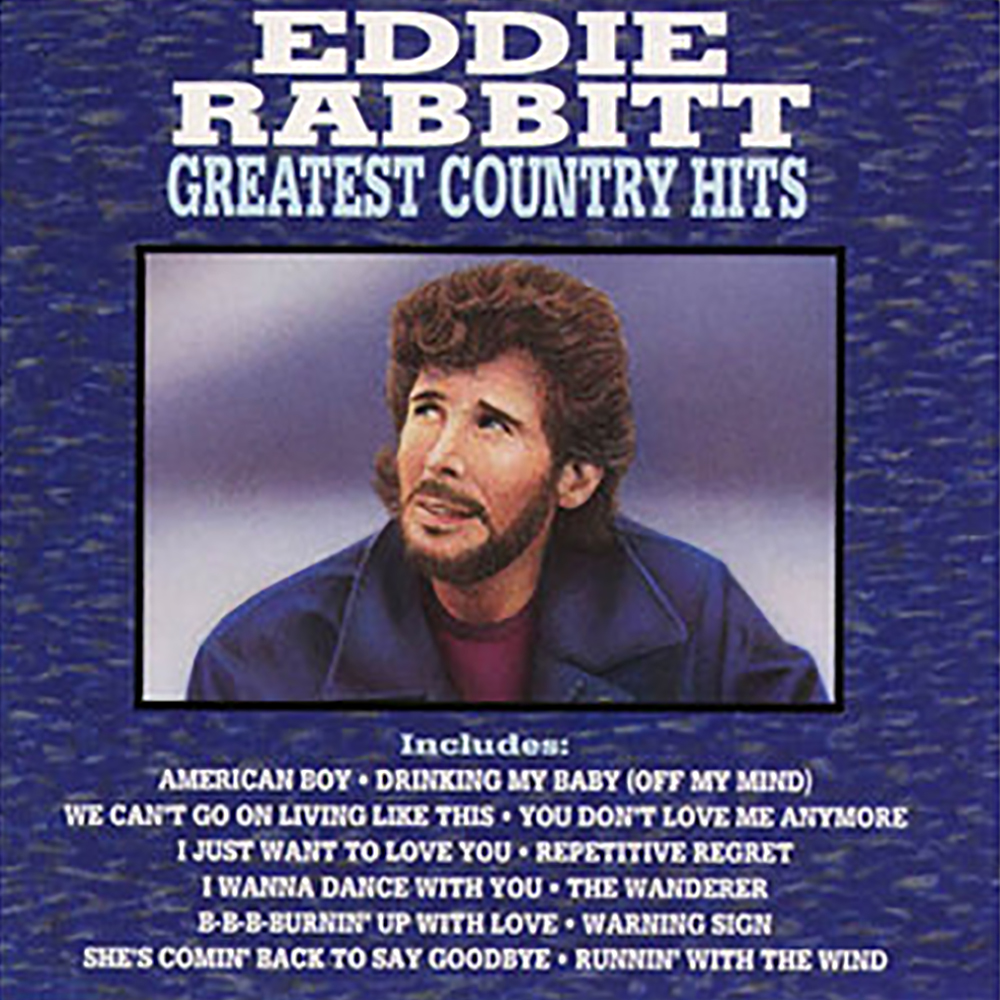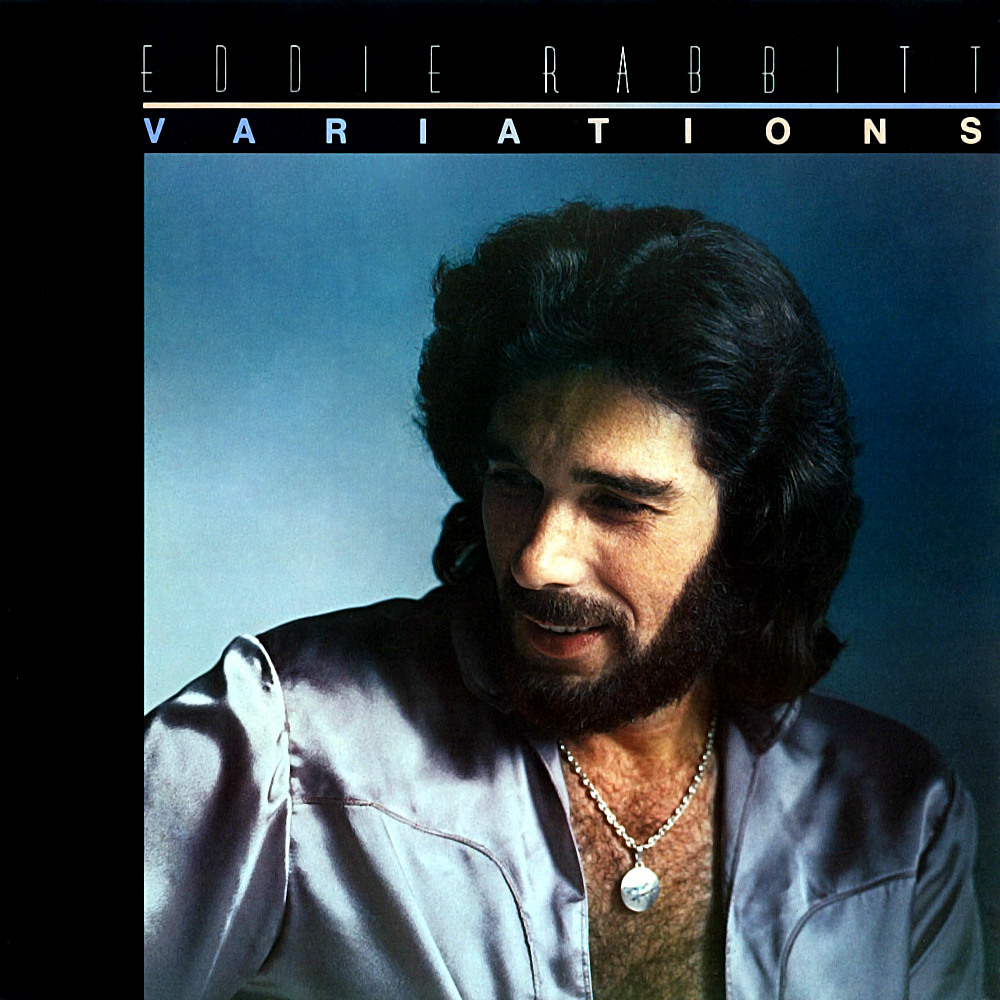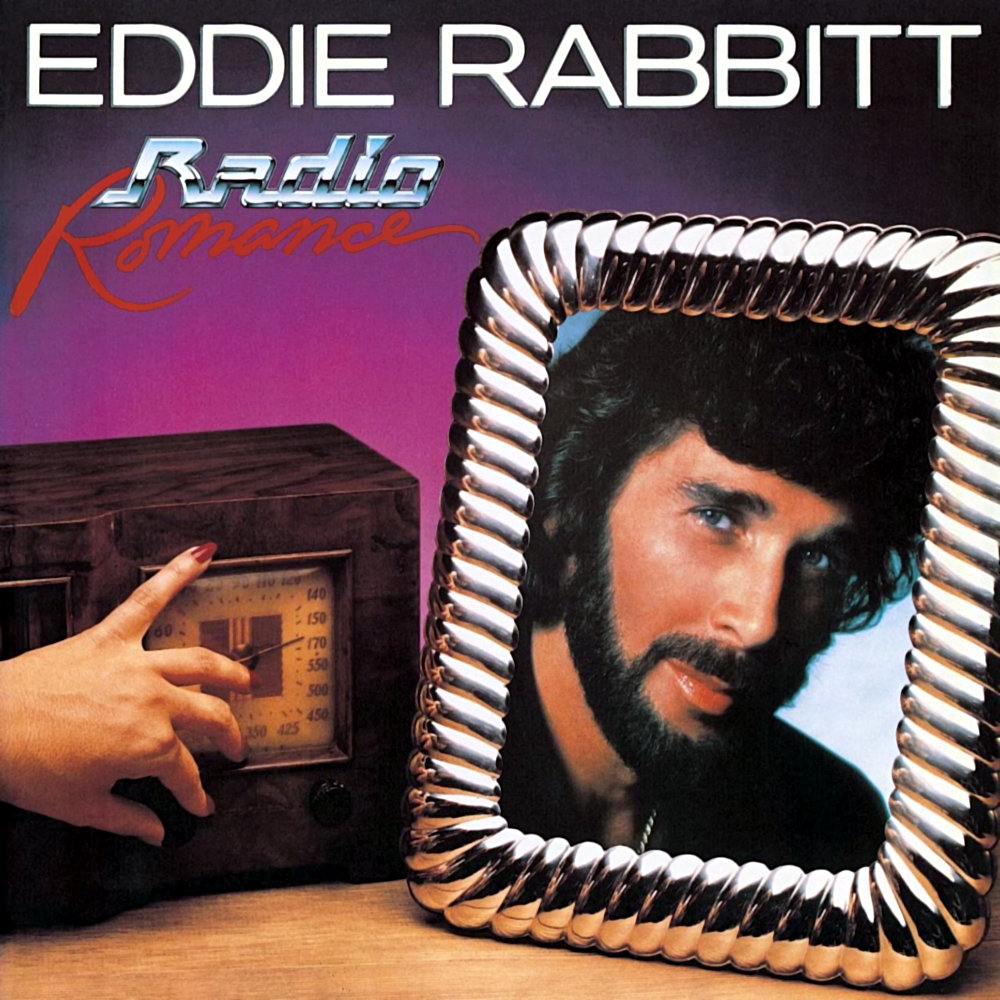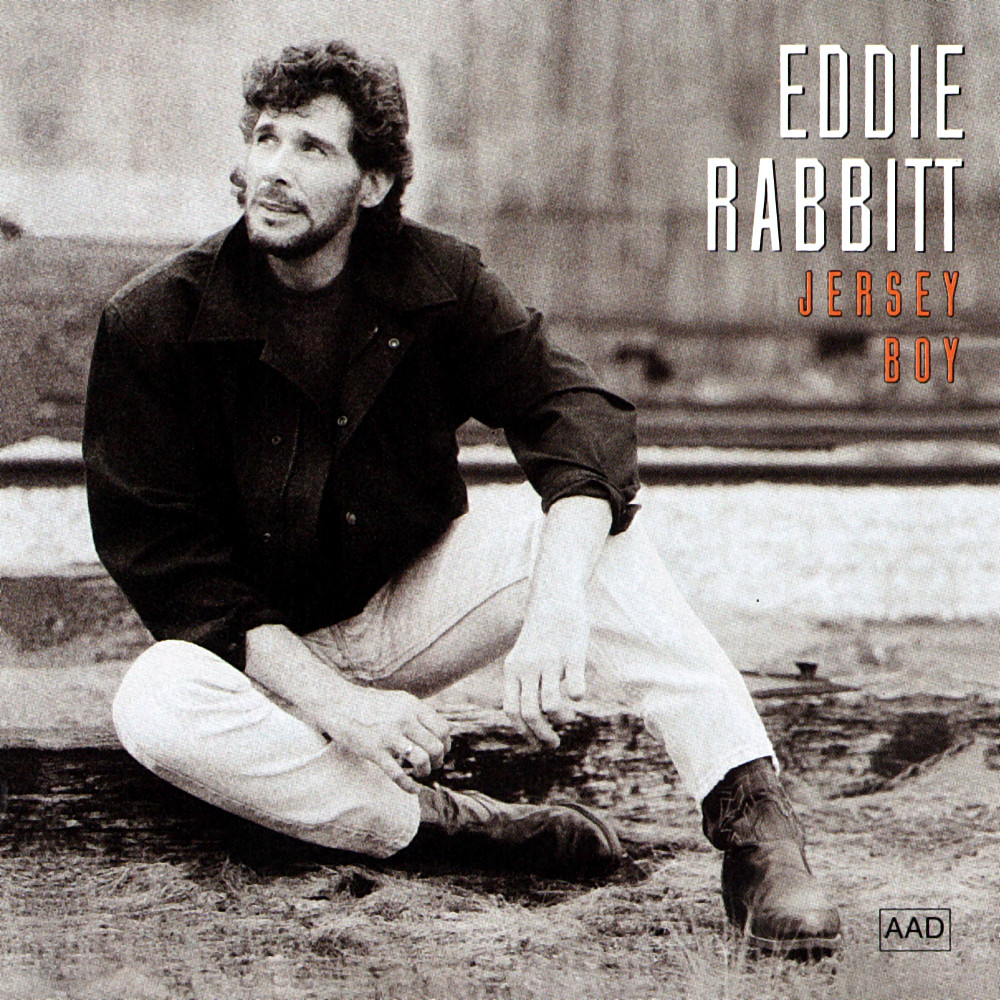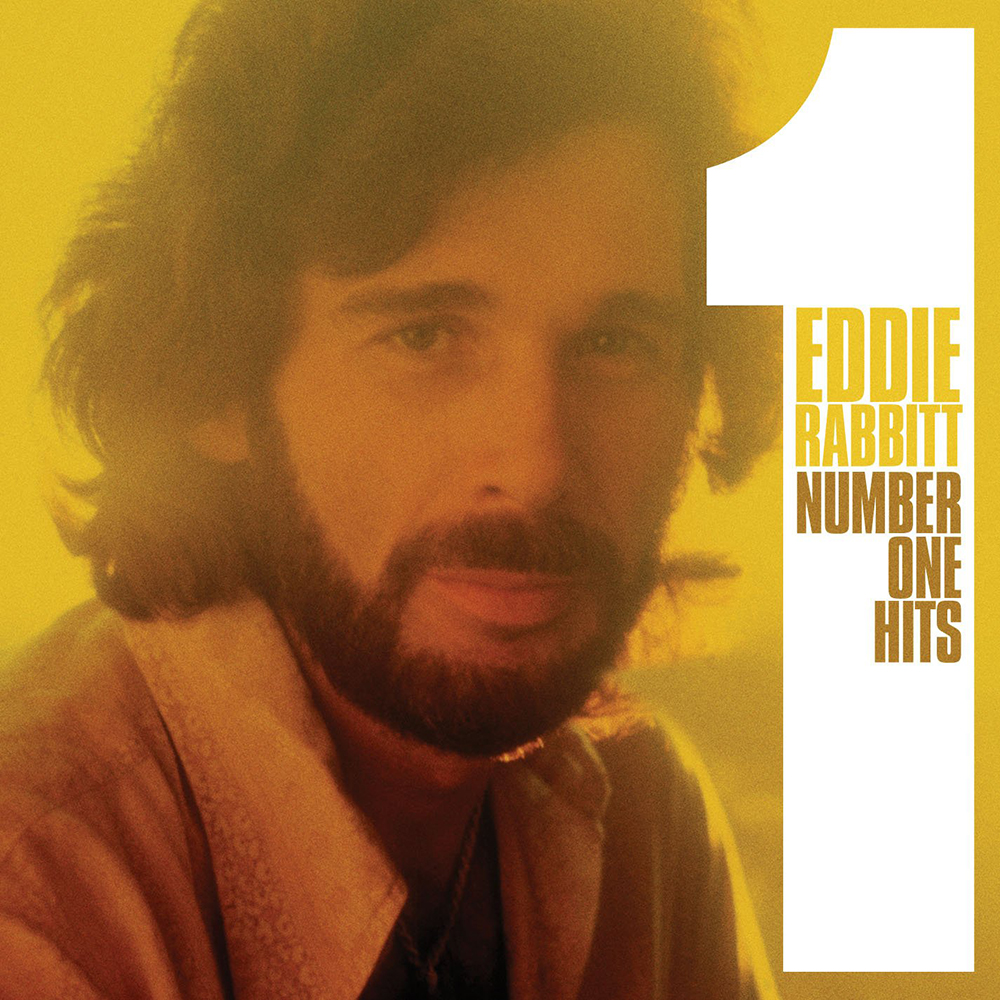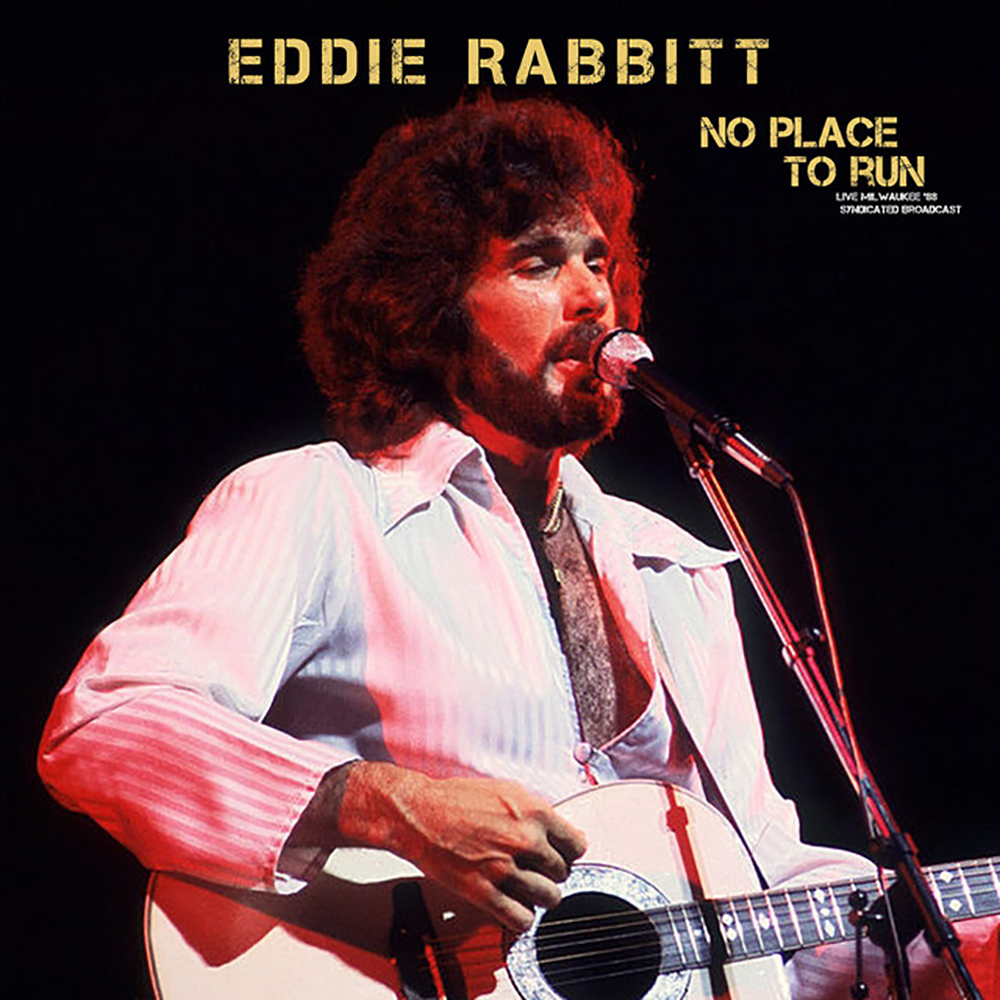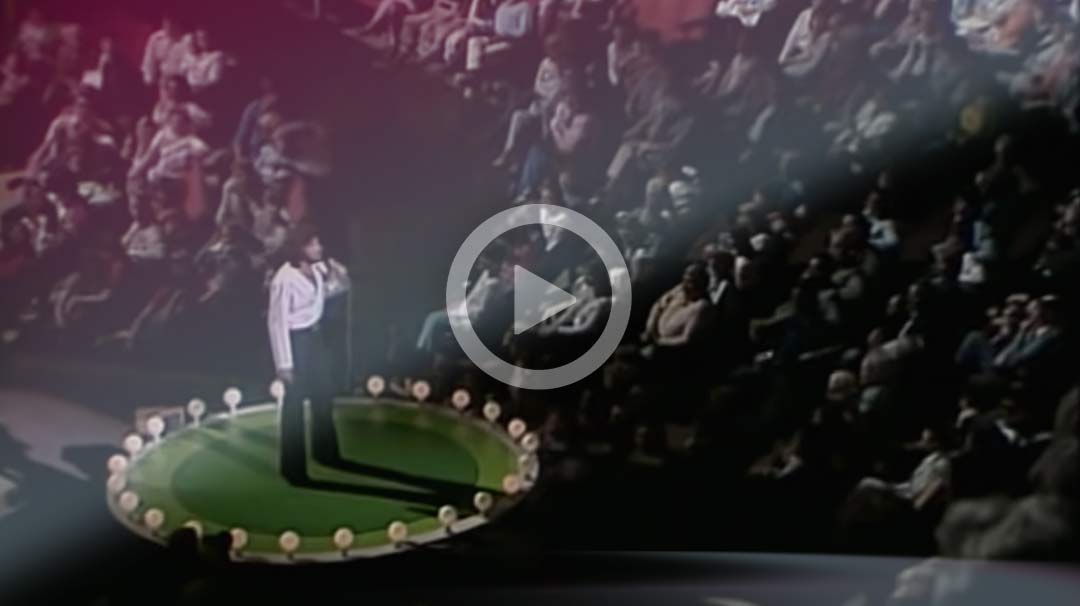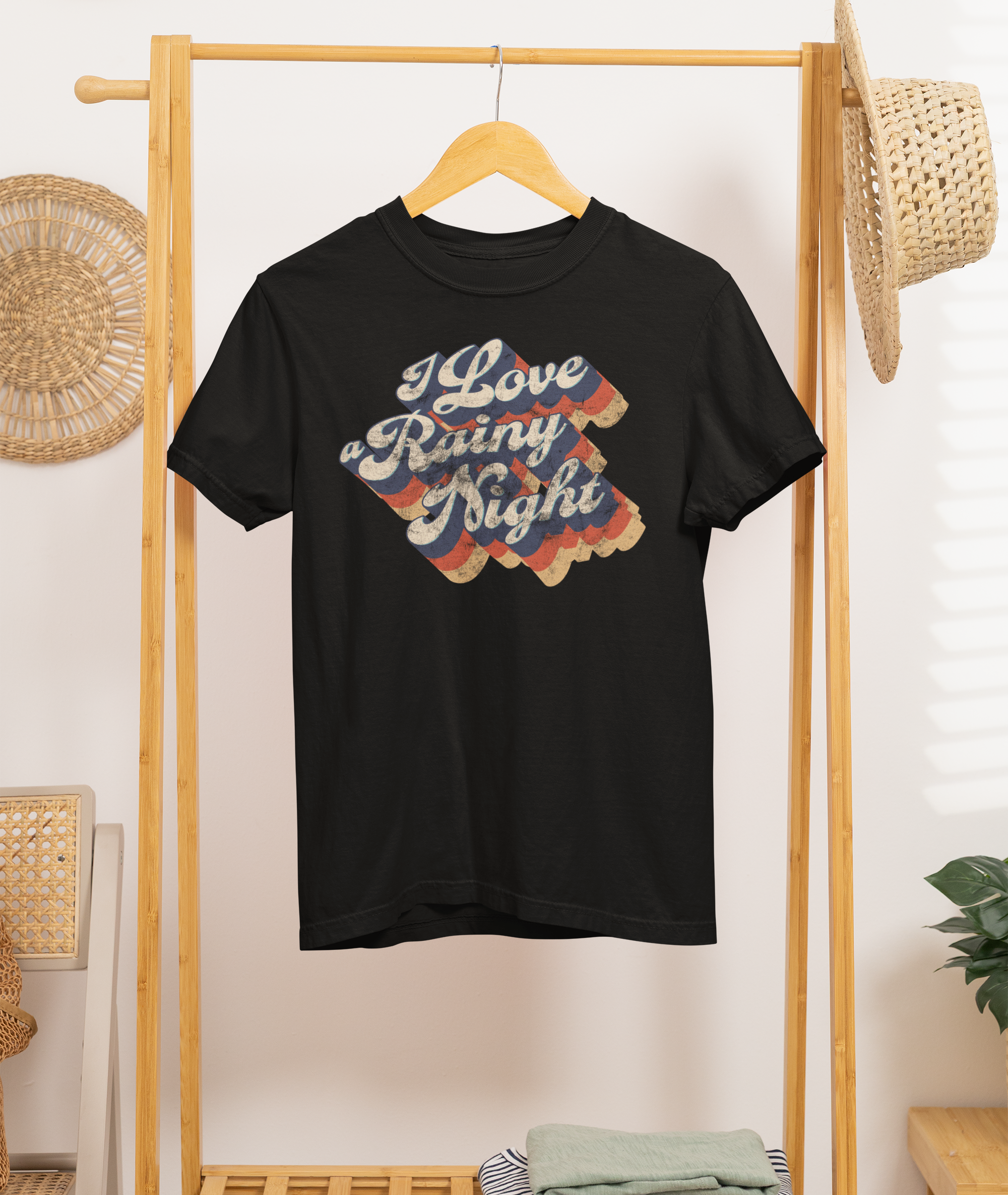Eddie Rabbitt was an American country music singer and songwriter. His career began as a songwriter in the late 1960s, springboarding to a recording career after composing hits such as "Kentucky Rain" for Elvis Presley in 1970 and "Pure Love" for Ronnie Milsap in 1974. Later in the 1970s, Rabbitt helped to develop the crossover-influenced sound of country music prevalent in the 1980s with such hits as "Suspicions," "I Love a Rainy Night" (a number-one hit single on the Billboard Hot 100), and "Every Which Way but Loose" (the theme from the film of the same title). His duets "Both to Each Other (Friends and Lovers)" with Juice Newton and "You and I" with Crystal Gayle later appeared on the soap operas Days of Our Lives and All My Children.
Rabbitt was the son of Thomas Michael and Mae Rabbitt in Brooklyn, New York, in 1941 and was raised in the nearby community of East Orange, New Jersey. His father was a skilled fiddle and accordion player who often entertained in local New York City dance halls. By age 12, Rabbitt was a proficient guitar player, having been taught by his scoutmaster. During his childhood, Rabbitt became a self-proclaimed "walking encyclopedia of country music."
Like his father, he fulfilled his love of music by performing at the Six Steps Down club in his hometown. He later won a talent contest and was given an hour of Saturday night radio show time to broadcast a live performance from a bar in Paterson, New Jersey. In 1964, he signed his first record deal with 20th Century Records and released the singles "Next to the Note" and "Six Nights and Seven Days." Four years later, with $1,000 to his name, Rabbitt moved to Nashville, where he began his songwriting career. During his first night in the town, Rabbitt wrote "Working My Way Up to the Bottom," which Roy Drusky recorded in 1968. To support himself, Rabbitt worked as a truck driver, soda jerk, and fruit picker in Nashville. He was ultimately hired as a staff writer for the Hill & Range Publishing Company for $37.50 per week. As a young songwriter, Rabbitt socialized with other aspiring writers at Wally's Clubhouse, a Nashville bar; he said he and the other patrons had "no place else to go."
Rabbitt became successful as a songwriter in 1969 when Elvis Presley recorded his song "Kentucky Rain". The song went gold and cast Rabbitt as one of Nashville's leading young songwriters. Presley also recorded Rabbitt's song "Patch It Up", featured in the concert film "Elvis: That's The Way It Is". And a lesser-known Presley song called "Inherit the Wind "on the Album Elvis Back in Memphis. Rabbitt also penned "Pure Love", which Ronnie Milsap rode to number one in 1974. This song led to a contract offer from Elektra Records, which he signed in 1975. His first single under that label, "You Get to Me," made the top 40 that year, and two songs in 1975, "Forgive and Forget" and "I Should Have Married You," nearly made the top 10. These three songs, along with a recording of "Pure Love," were included on Rabbitt's 1975 self-named debut album. In 1976, his critically acclaimed album Rocky Mountain Music was released, which included Rabbitt's first number-one country hit, "Drinkin' My Baby (Off My Mind)". In 1977, his third album, Rabbitt, was released and made the top five on the Country Albums chart. Also, in 1977, the Academy of Country Music named Rabbitt "Top New Male Vocalist of the Year." By that time, he had a good reputation in Nashville and was being compared by critics to singer Kris Kristofferson. In 1977, at Knott's Berry Farm, Rabbitt appeared at the Country Music Awards and sang several of his songs from Rocky Mountain Music. He won the Top New Male Vocalist of the Year award.
While still relatively unknown, Rabbitt toured with and opened for crossover star Kenny Rogers and also for Dolly Parton on a number of dates during her 1978 tour. Following the 1978 release of Variations, which included two more number-one hits, Rabbitt released his first compilation album, The Best of Eddie Rabbitt. It produced Rabbitt's first crossover single, "Every Which Way But Loose," which topped country charts and reached the top 30 on both the Billboard Hot 100 and Adult Contemporary, and was featured in the 1978 Clint Eastwood movie of the same name. The song also broke the record for highest chart debut, entering at number 18. Rabbitt held this record until it was shared with Garth Brooks's 2005 single "Good Ride Cowboy." The record was broken in 2006 upon the number-17 chart entrance of Keith Urban's "Once in a Lifetime." Rabbitt's next single, the R&B-flavored "Suspicions" from his 1979 album Loveline, was an even greater crossover success, again reaching number one on Country charts and the top 15 on the Billboard Hot 100 and number five on the Adult Contemporary charts. He was given his own television special on NBC, first airing on July 10, 1980, which included appearances by such performers as Emmylou Harris and Jerry Lee Lewis. By this point, Rabbitt had been compared to a "young Elvis Presley."
Rabbitt's next album, Horizon, reached platinum status and contained the biggest crossover hits of his career, "I Love a Rainy Night" and "Drivin' My Life Away." Rabbitt developed "Rainy Night" from a song fragment he penned during a 1960s thunderstorm. "Drivin'" recalled Rabbitt's short tenure as a truck driver and was inspired by Bob Dylan's song "Subterranean Homesick Blues." His popularity was so great at this point that he was offered his own variety television show, which he respectfully declined, saying, "It's not worth the gamble."
The release of his 1981 Step by Step album continued Rabbitt's crossover success as all three singles reached the top 10 on both Country and Adult Contemporary charts. The title track became Rabbitt's third straight single to reach the top five on the Country, Adult Contemporary, and Billboard Hot 100 charts. The album ultimately reached gold status, Rabbitt's last album to do so. He teamed up with another country-pop crossover star, Crystal Gayle, on "You and I," which was included on his 1982 album Radio Romance. The duet reached number one on the Billboard Country chart and became a pop smash, peaking at number seven and number two, respectively, on the Billboard Hot 100 and Adult Contemporary charts. In addition, it was used as a love theme for a couple on the soap opera All My Children. The song "You Put the Beat in My Heart" from Rabbitt's second compilation, Greatest Hits - Volume II (1983), was his last crossover hit, reaching number 15 on the Adult Contemporary chart.
During the 1980s, Rabbitt moved further from crossover-styled music. His 1984 album The Best Year of My Life produced a number-one country hit and three more top-10 country hits, but none had crossover success. In 1985 RCA Records released Rabbitt Trax, which included the number one "Both to Each Other (Friends and Lovers)," a duet with country-pop star Juice Newton. Like "You and I," the song was used as the theme for a soap opera, Days of Our Lives.
Rabbitt released I Wanna Dance With You, which produced two number-one songs, a cover of Dion's "The Wanderer," and the album's title track. Additionally, "We Must Be Doin' Somethin' Right" entered the top 10, although the album's final single, "That's Why I Fell in Love with You," stalled at number 66. Rabbitt's Capitol Records album Jersey Boy was reviewed positively, as was its single "On Second Thought," Rabbitt's last number-one hit. The album also included "American Boy," a patriotic tune popular during the Gulf War and used in Bob Dole's 1996 presidential campaign.
Rabbitt was among the many country singers who suffered a dramatic decline in chart success beginning in 1991. That year, he released Ten Rounds, which produced the final charting single of his career, "Hang Up the Phone." Following that release, he left Capitol Records to tour with his band Hare Trigger.
In 1997, Rabbitt signed with Intersound Records but was soon diagnosed with lung cancer. After a round of chemotherapy, he released the album Beatin' the Odds. In 1998, he released his last studio album, Songs from Rabbittland.
Rabbitt used innovative techniques to tie country music themes with light rhythm and blues-influenced tempos. His songs often used echo, as Rabbitt routinely sang his own background vocals. In a process called the "Eddie Rabbitt Chorale", Rabbitt compensated for what Billboard Magazine described as a "somewhat thin and reedy voice" by recording songs in three-part harmonies. His music was compared to rockabilly, particularly the album Horizon, which was noted as having an Elvis-like sound. Rabbitt remarked that he liked "a lot of the old Memphis sounds that came out of Sun Records" during the 1950s and that he "wanted to catch the magic of a live band." He credited such wide-ranging artists as Bob Dylan, Elton John, Steely Dan, Elvis Presley, and Willie Nelson with influencing his works. When putting together an album, Rabbitt tried to make sure he put in "ten potential singles...no fillers, no junk." Rabbitt believed that country music was "Irish music" and that "the minor chords in [his] music gave it that mystical feel." Although he did not strive to produce pop music, his songs helped influence the direction of country music, leading to the Urban Cowboy era during the 1980s. Critic Harry Sumrall of the San Jose Mercury News said that Rabbitt was "like a hot corn dog: nothing fancy, nothing frilly. You know what you're getting, and you like it... never a country purist, Rabbitt nonetheless makes music that is plain and simple, with all of the virtues that make good country good. [His songs] might be brisk, but they are also warm and familiar, like the breeze that wafts in over the fried artichokes."
In 1976, Rabbitt married Janine Girardi, whom he called "a little thing about five feet tall, with long, black beautiful hair, and a real pretty face." He had previously written the songs "Pure Love" and "Sweet Janine" for her. Rabbitt felt his responsibility as an entertainer was to be a good role model and he was an advocate for many charitable organizations, including the Special Olympics, Easter Seals, and the American Council on Transplantation, of which he served as honorary chairman. He also worked as a spokesman for the Muscular Dystrophy Association and United Cerebral Palsy.
Rabbitt died on May 7, 1998, in Nashville from lung cancer at the age of 56. He was laid to rest at Calvary Cemetery in Nashville on May 8, 1998.

